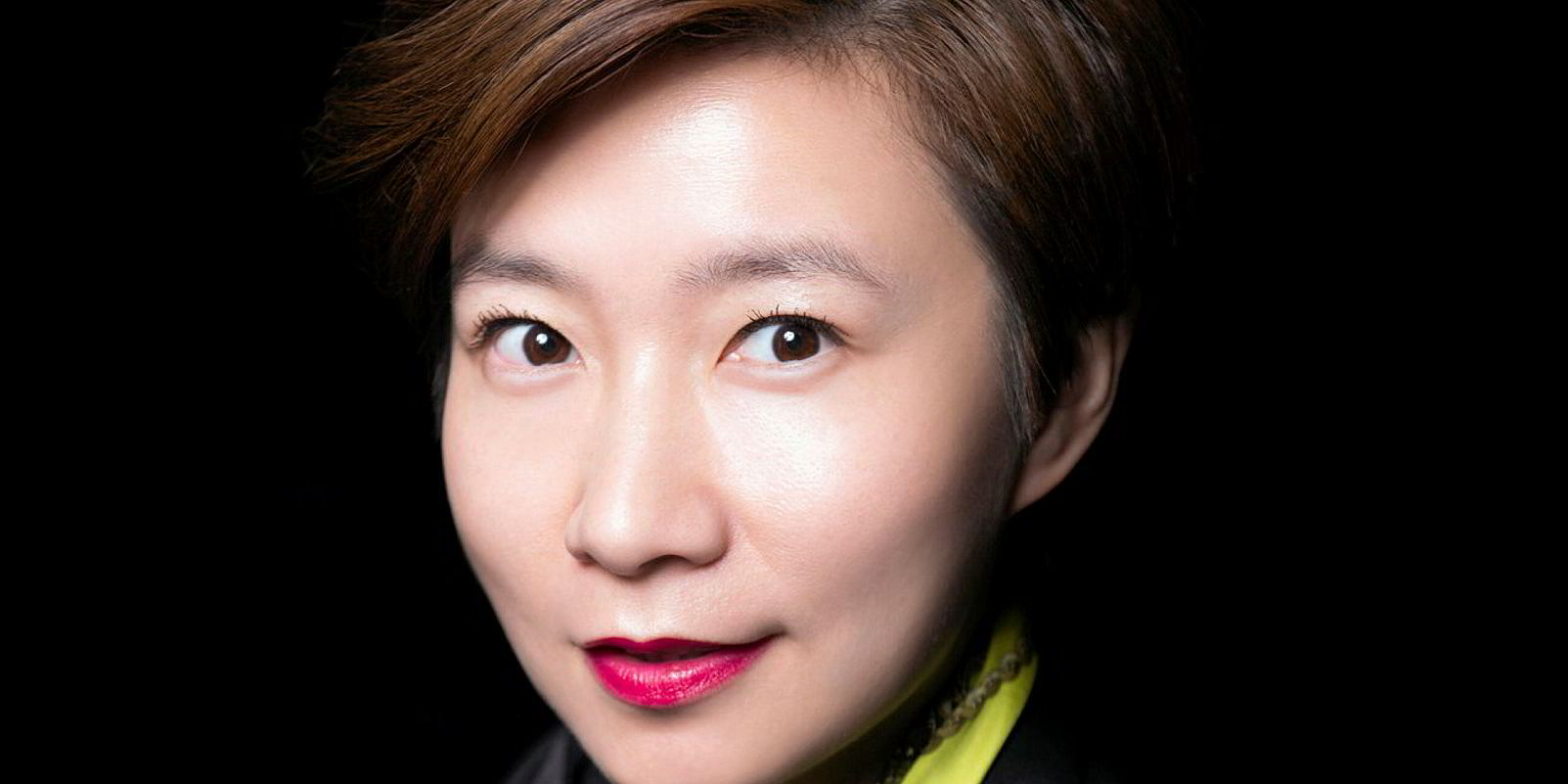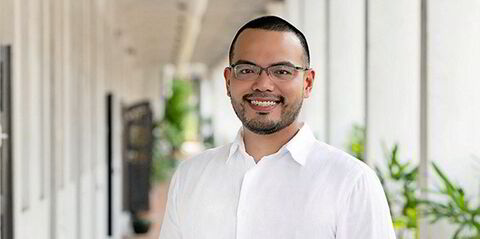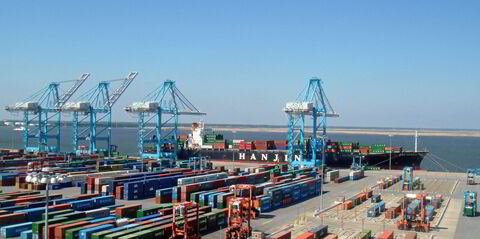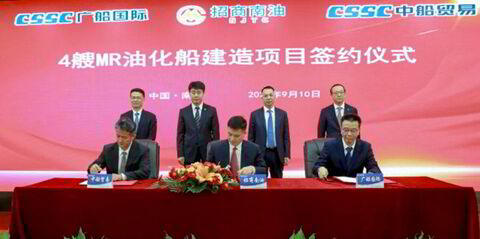Shipping’s lack of women in senior executive roles is well-documented but some have made it through the glass ceiling and others are following in their wake.
In a focus on gender in the maritime sector, which is echoed in the new issue of our quarterly magazine TW+, TradeWinds has spoken to a number of women working across sectors of the shipping industry around the world who are at different stages in their careers.
The aim was to hear from female voices in positions of authority who — on the whole — have not entered the business through family connections, and chart their views on how open the industry has been to them.
Any company or business that’s not able to recruit [from] 50% of the population has a big problem, so we shouldn’t take the approach of trying to convince companies of what women can bring to the table.
Some had much to say on their experiences — what has helped them reach their current positions — and almost all have at least a few words of advice for business leaders or those women who might look to follow in their footsteps.
Not everyone TradeWinds approached or spoke to was keen to participate. Some, who kindly agreed to, made it clear that they did not want the attention to be on gender but more on their achievements and the way they work.
Many spoke of positive male role models and mentors, the importance of promoting on merit not simply gender but also the need to encourage more women into the industry.
Some highlighted the strengths that women bring to the table — along with a few less attractive attributes of their male colleagues.
Several said there is a new generation of women coming through who they think will bring change to the shipping industry and its somewhat hidden career paths.
And running throughout was the reflection that it might be shipping that has the bigger challenge, rather than women.
“Any company or business that’s not able to recruit [from] 50% of the population has a big problem, so we shouldn’t take the approach of trying to convince companies of what women can bring to the table,” said Shearwater GeoServices chief executive Irene Waage Basili.
“It’s actually about turning it around and asking what challenges will a business face if they’re not able to recruit from 100% of the population.”
Contributions by:Irene Ang, Michael Angell, Jonathan Boonzaier, Joe Brady, Julian Bray, Adam Corbett, Geoff Garfield, Darrin Griggs, Michael Juliano, Ian Lewis, Eric Martin, Jim Mulrenan, Harry Papachristou, Andy Pierce and Bob Rust
Zhu Yunrong (Emma Zhu) heads a four-woman investment team that is an active buyer of ships and corporate shipping assets. A fifth woman will soon join the team.
Zhu has acquired a fleet of 22 secondhand and newbuilding vessels since she set up the trust’s shipping operation. Despite having recruited some male talent with shipping and finance backgrounds, Zhu says her male hires have all found the work too tough and quit.
She says that around half of top management at China Minsheng Trust are women.
“Luckily, you can find more and more women with a strong voice in the shipping industry in China,” Zhu tells TradeWinds.
Few are at the C level yet but that is a matter of generational change. “Someday they will even dominate the industry. We are a new generation and our world has changed a lot.”
She sees similar progress in Norway and in Greece, but she was struck by the complete absence of women on the other side of the table on a five-day visit to Japan in December to meet shipowners, shipbuilders and financiers.
“I could see by their astonished faces that they did not expect they would be meeting with two young ladies,” she says, but adds that her team was well received.
In China, she feels men and women face similar challenges, especially outside the technical management divisions of shipowning companies, where the requirement for seafaring experience results in an unbalanced recruitment pool.
“I never met people who doubted my ability because I am a woman. I think I am as strong as a man, but I think that I should keep my feminine advantages,” she says.
Men or women seeking shipping industry careers should believe in themselves and their vision of the future, but she advises women to exploit sides of themselves where she believes women excel.
“Women are often better at listening to others and communicating smoothly with others, but also at insisting on what they believe in. We are more patient, we have more soft manners, and we are better at compromises.”
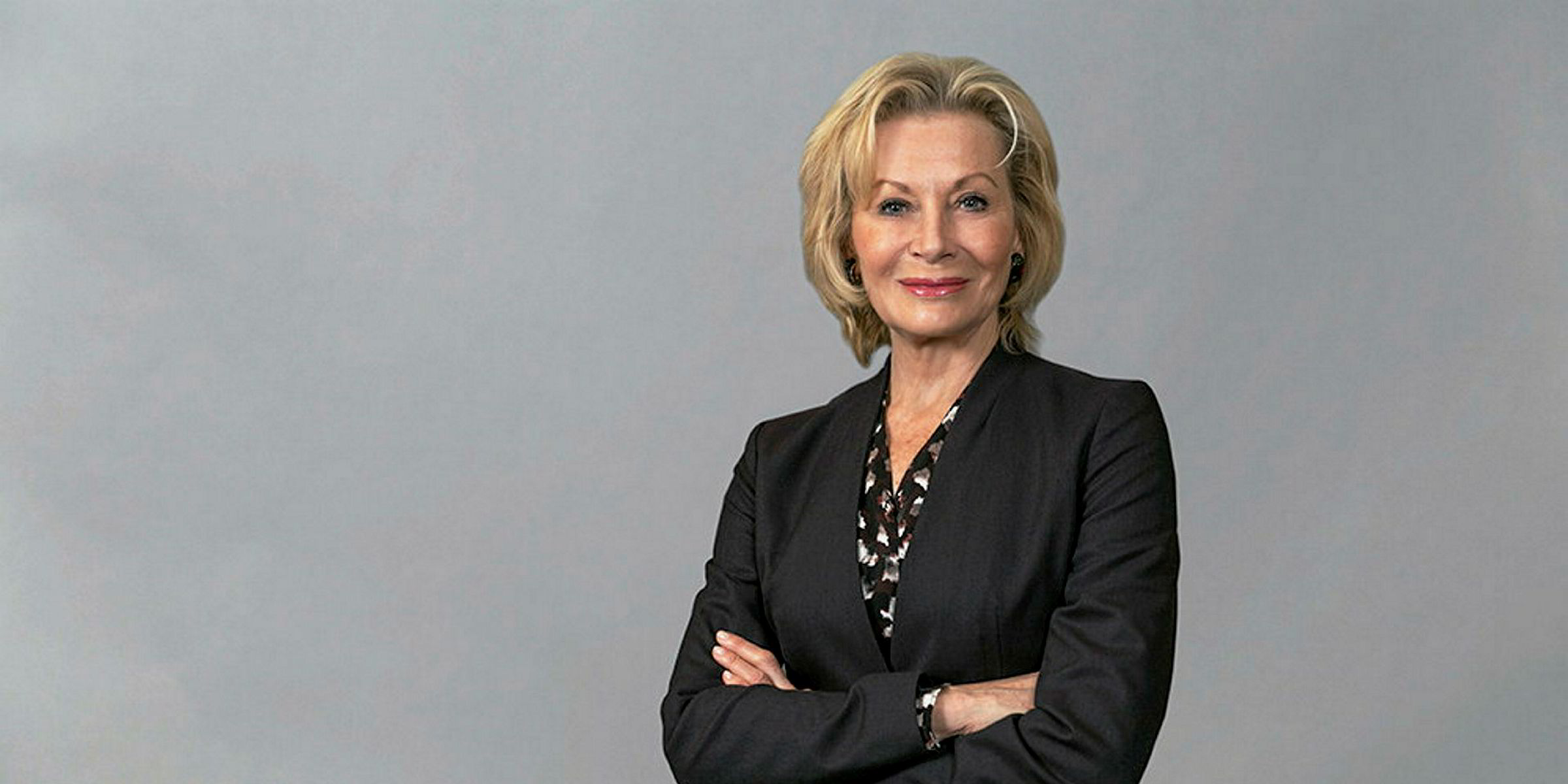
Randee Day likely knows the challenges facing a woman breaking into shipping better than most, tracing the experience to the late 1970s after leaving a US government job in the administration of US President Richard M Nixon.
“At the time, being a woman was one of the biggest challenges I faced as there were virtually no women in international banking or maritime, oil or gas,” Day recalls.
Nonetheless, Day by her early 30s found herself running JP Morgan’s shipping group.
“I couldn't believe that a firm, let alone one as prestigious as Morgan Guarantee, actually paid for me to fly around the world from Greece to Scandinavia to Asia to not just work on - but lead - huge mergers, acquisitions and new orders.”
It’s been onward and upward from there in a career that has made her one of the most recognisable faces in the financial corner of the sector.
After some 40 years in the business, Day doesn’t advocate gender quotas.
“The market doesn't care what gender you are. It cares about whether you can find a ship, finance a ship, run a ship, charter a ship and sell a ship at the right time,” Day says.
She sees old attitudes changing and foresees the day when gender will be entirely irrelevant.
Day advises today’s young female aspirants to be as well rounded as possible in areas like finance, chartering, technical acumen, marketing and digitalisation.
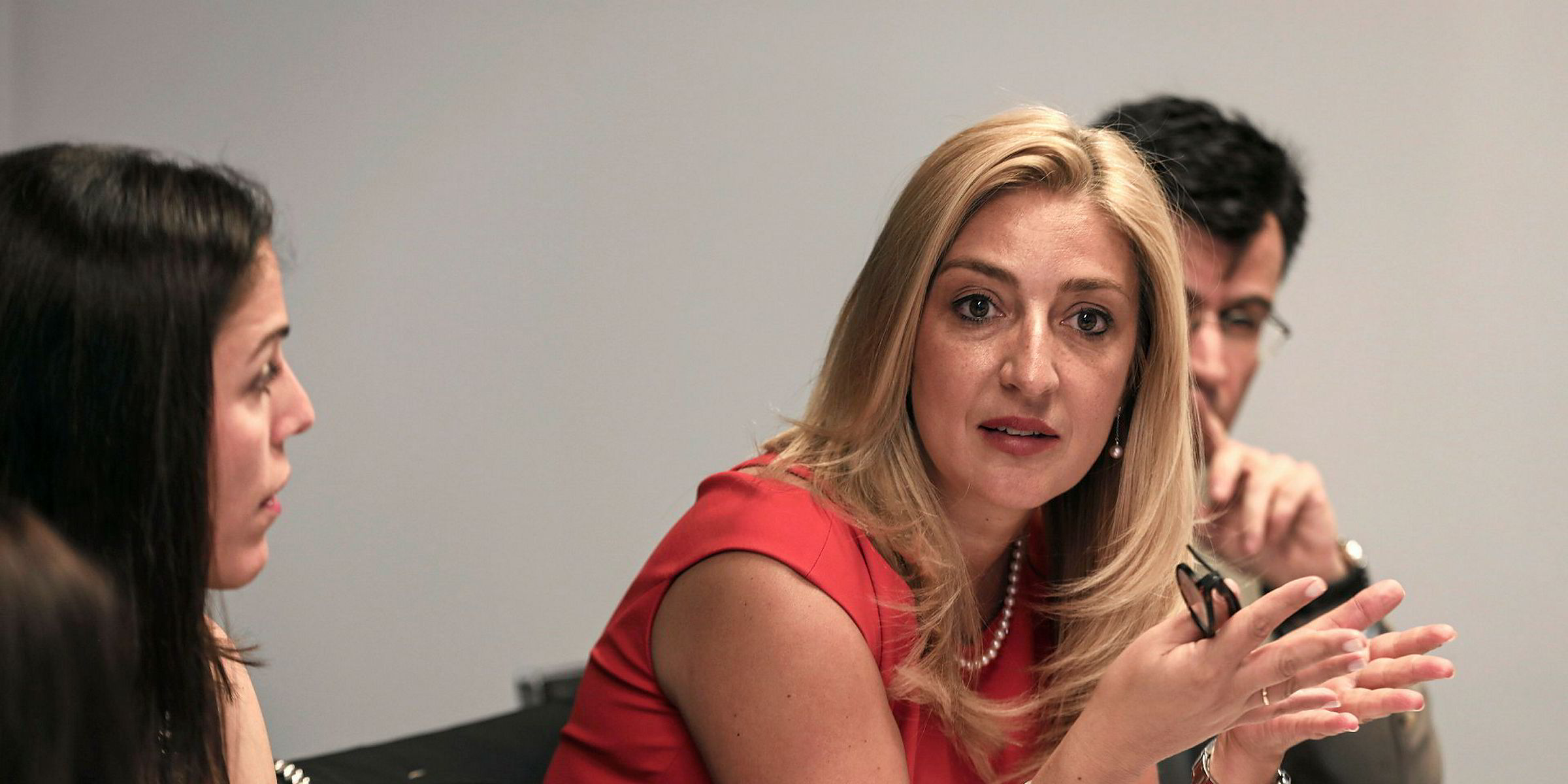
Few women have entered the Greek shipping industry and advanced in it without any prior family history predestining them for such a move, but Paillette Palaiologou is one of them.
“I went to shipping by coincidence,” she says. “As far back as she could remember, her dream was to become an engineer.”
When Palaiologou went to university, naval architecture happened to be at the top of the curriculum, so she simply said, “Why not?” She was aware of her country’s rich shipping heritage, but had otherwise no personal ties to it.
She joined Petros Pappas-controlled Oceanbulk. “It was a rare sight, especially at the time, to see a woman checking hulls and dry docks,” she said. “I have travelled a lot in the field, going aboard the vessels. Practical experience is very important.”
The first time she visited a Chinese yard was in 1997. She returned in 2002 and president said she was only woman who had been there in the five years.
“It is about the personality and capability of the person. As a woman, on top of having to be very knowledgeable about what you are doing, you also have to be very hard working and dedicated.
“Also, you need to radiate confidence that you can accomplish tasks assigned to you – and be a quick decision maker and have the right instincts.”
Working with BV she says: “I am very lucky to work in a French multinational company. They give us equal chances but you have to prove yourself. I was the first [female] vice president of the company, but it was hard at first: we were not even getting an equal salary.”
But things have come a long way. Twenty-five years ago Palaiologou said she sent a CV and got a response saying women were not being accepted. "He is a client today," she says.

Hou Juzhen joined shipbuilding some 30 years ago.“I learnt about shipping and shipbuilding from scratch. I read nine books about the industry in six months and memorised all the shipping and shipbuilding terms by heart,” she says.
Hou, in her 60s, was involved in Jiangnan’s first gas tanker export order. “Until now, I can still remember the specifications for this ship. There was a lot of hardship involved in this project. I worked overtime every day for four years.
“Why? I wanted to do well and, I was the only female in a team of 38 men. I was pushed around and was blamed for the slightest matter. But on one occasion, I stood up for myself. From then on, I was never pushed-over by male colleagues as I won their trust and respect.”
After spending 15 years in Jiangnan, Hou joined Germanisher Lloyd, today’s DNV GL.
“There are more females joining the sector now. Many of them are as capable as their male colleagues. But things can further improve... I hope more flexibility will be given to the female workforce so that they can balance both work and home.
“DNV GL has a good working environment for women. It gives equal opportunity to its female employees when it comes to managerial positions.”
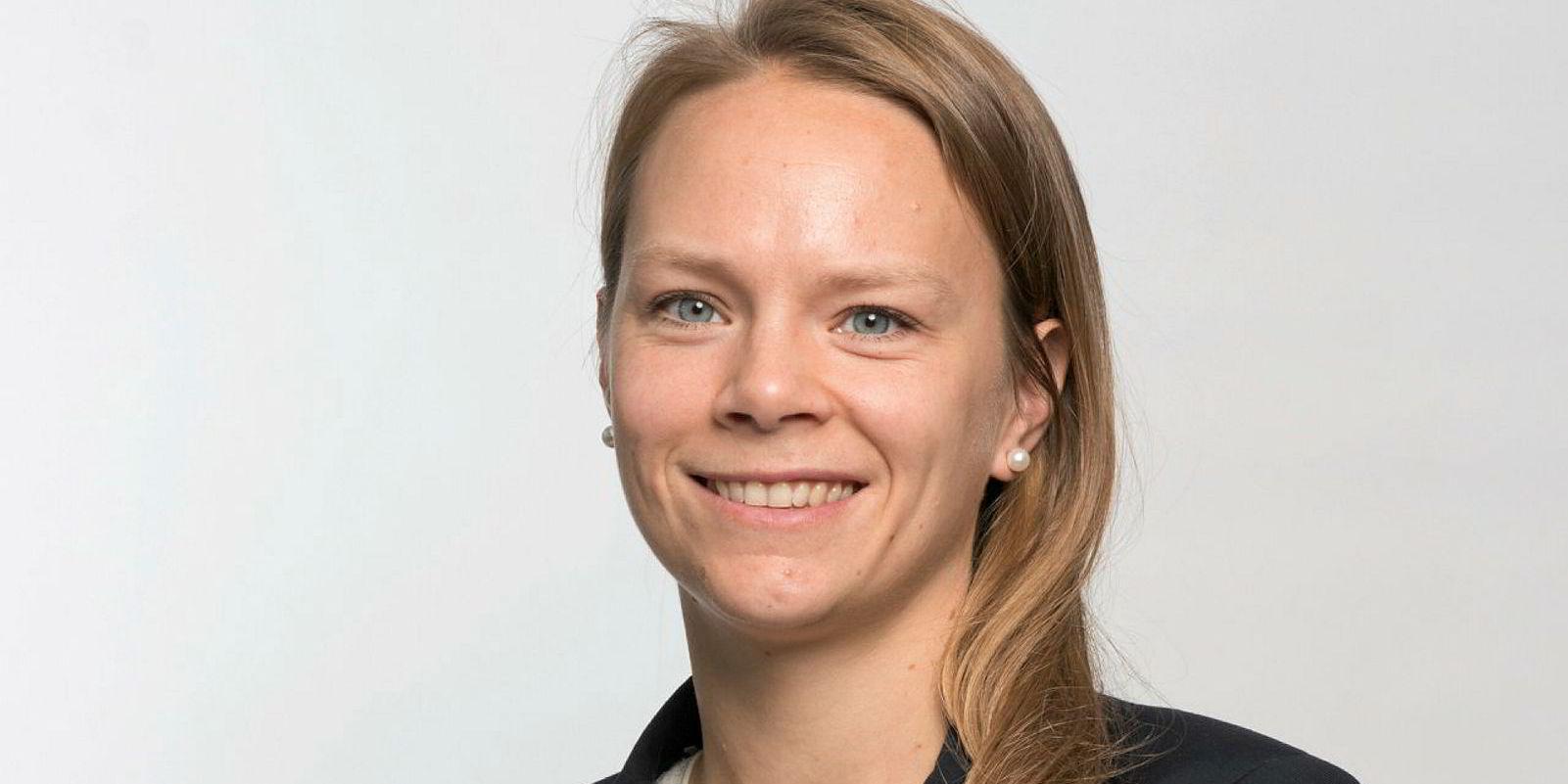
When Goril Gleditsch graduated in 2006 the majority of her classmates went into the offshore industry.
But Gleditsch says that she got lucky with an opportunity to join the technical and newbuilding department at Stolt Tankers in Rotterdam.
“There were ships in port almost every day and the huge newbuilding programme involved travel a lot to South Korea and China. It was a very good experience,” she says.
After time at BW Offshore, Gleditsch returned to “the sailing ships”. “It’s nice to have a spinning propeller.”
She says that she can count the number of women in technical manager roles on one hand. But the situation is changing --— just 10% of her university class were women compared with today’s 30% to 40%.
Gleditsch says that having a theoretical degree it has been important to get onboard vessels to gain as much practical experience as possible.
Shipping is not a nine-to-five, five-day a week job, and there is a need to be flexible, able to travel and work when things happen, she says.
“A ship sails regardless if it is Christmas Eve or Monday morning. It helps if you enjoy it and are passionate about it. There is always something new and every day is different. You learn something all the time.”
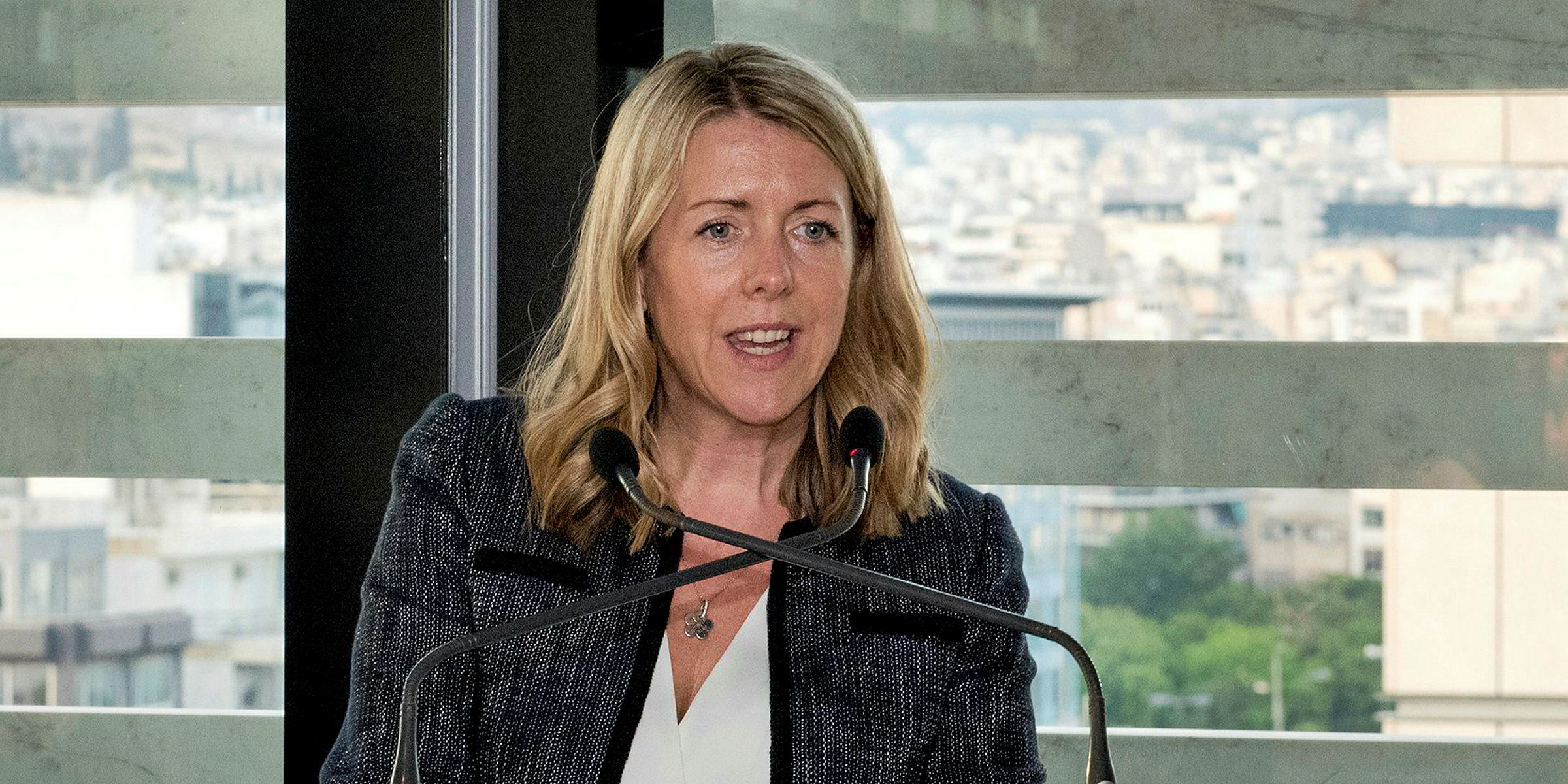
Lindsey Keeble had an eight-week-old baby when she was offered her position at ship finance law practice Watson Farley & Williams. She talks of her company as a meritocracy with male and female role models where women can hold senior positions.
Keeble believes the narrative of women in leadership is changing, due to an underlying shift in the culture of management.
“To be successful you do not have to emulate your male colleagues or align your behaviour to male leadership stereotypes,” she says. “Industry is more open to the different perspective that can be brought to the table by women in management roles.”
Women will reshape shipping in the coming decade by being willing to play their part as leaders, Keeble believes. “I can look around and see ‘a few’ women making a big impact in different parts of the industry — there can and will be more.”
However, she sees other issues than gender as more pressing for shipping such as technological change, cyber security and environmental impact.
Her advice to other women building a career in shipping: “Be yourself — do not try to be something you are not. It is likely to be exhausting! You should believe you deserve to be at the table and have your contributions valued.”
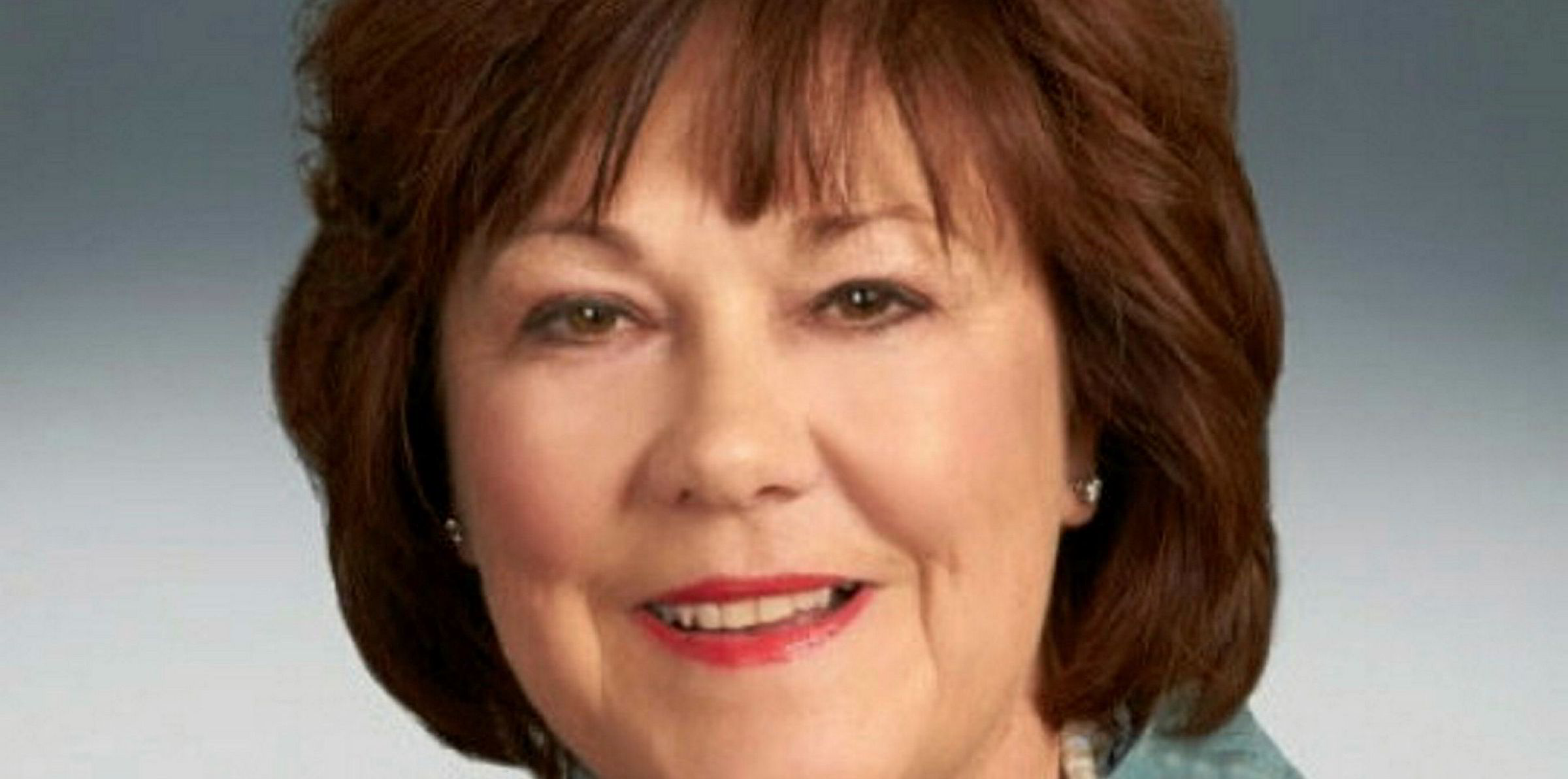
Kathy Haines says her promotion to CFO at former shipowner OMI in 1998 still informs her thoughts on how companies can work to improve gender balance at a senior level.
“I think gender balance will occur naturally in the corporate world if the companies hire the best candidates and nurture and promote from within wherever possible.”
Haines is optimistic that attitudinal changes already are in progress. “Although the change may be too slow for some, over the years I have seen the ‘good old boy’ attitude change and I expect it to be gone in the very near future.
“I have met a lot of interesting and talented women who have joined the industry in recent years and I fully expect we shall see them rise to the top of their companies or start their own companies, as many have in fact already done.”
Haines advises women interested in pursuing a maritime career to find a mentor or role model to ease the process. “The more well-rounded and commercially minded you are, the more you will succeed. Take advantage of all the networking opportunities shipping offers to broaden your knowledge.”
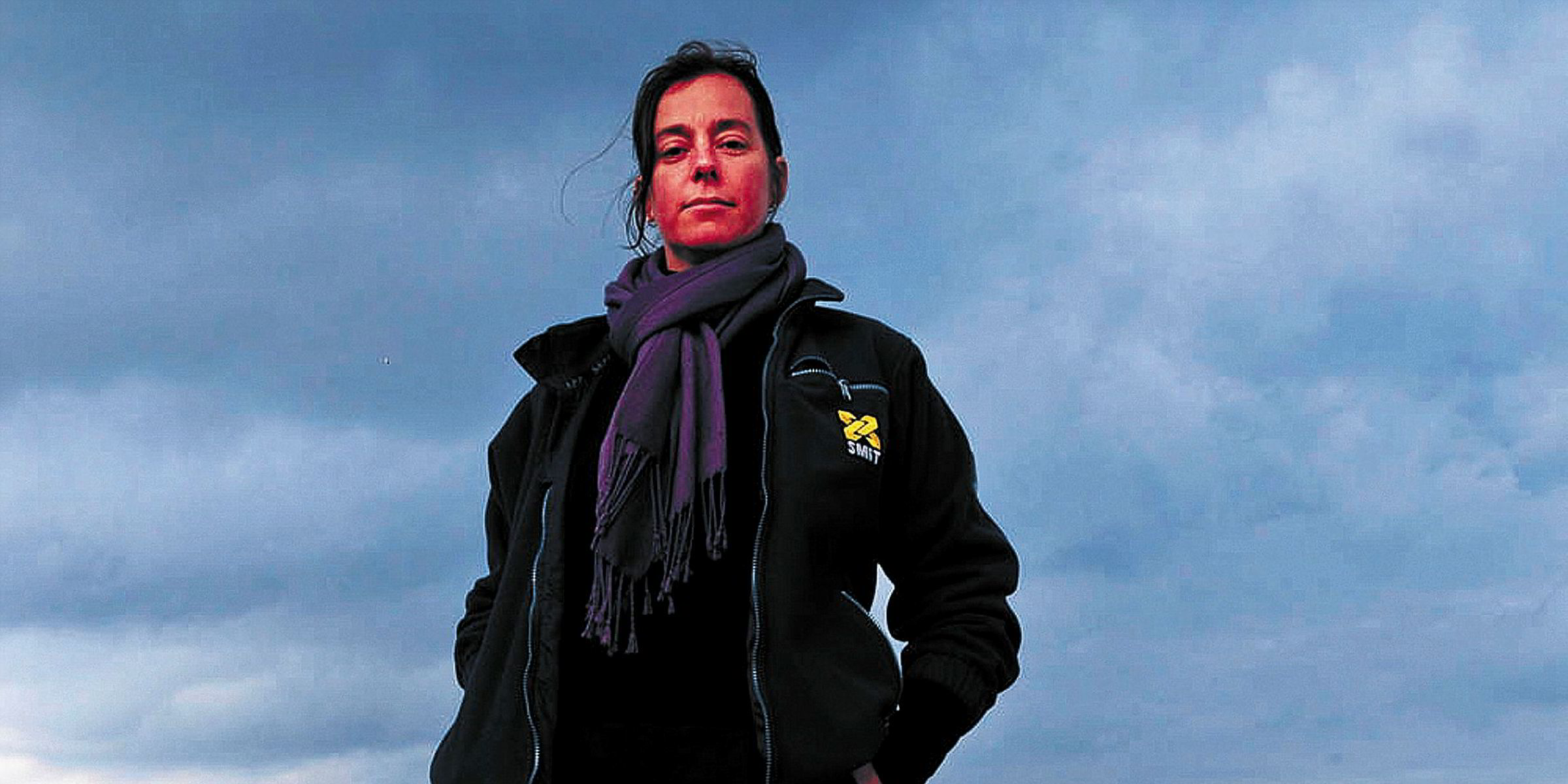
Sylvia Tervoort is one of the few women to make it to the position of salvage master, not only coordinating, but also being hands-on in the salvage operation. It is regarded as one of the most exciting, thrilling and, at the same time, dangerous jobs in shipping.
In a long career at Smit, Tervoort has been involved in some of shipping’s biggest casualties from the Costa Concordia to more recently the hazardous job of rescuing the semi-submersible rig Transocean Winner from the rocks off Dalmore, Scotland.
She does not get hung up over the gender issue. Tervoort says that she is working in an industry where the critical factor is simply about making the right decisions and getting the job done.
“Life is about so much more than men and women. Salvage, due to the characteristics of the industry is focused on quick decision-making, keeping overview and being knowledgeable about the subject, but also about cultural differences. And because it involves individuals, issues may arise. This has nothing to do with being a woman, although people may claim that.”
She has a simple message for women who might want to follow her — go for it!
“Never let yourself believe marine salvage, or the marine industry, is not for women. Women are hands-on, good in multitasking and that’s what is required. In the end, it is a team effort.”
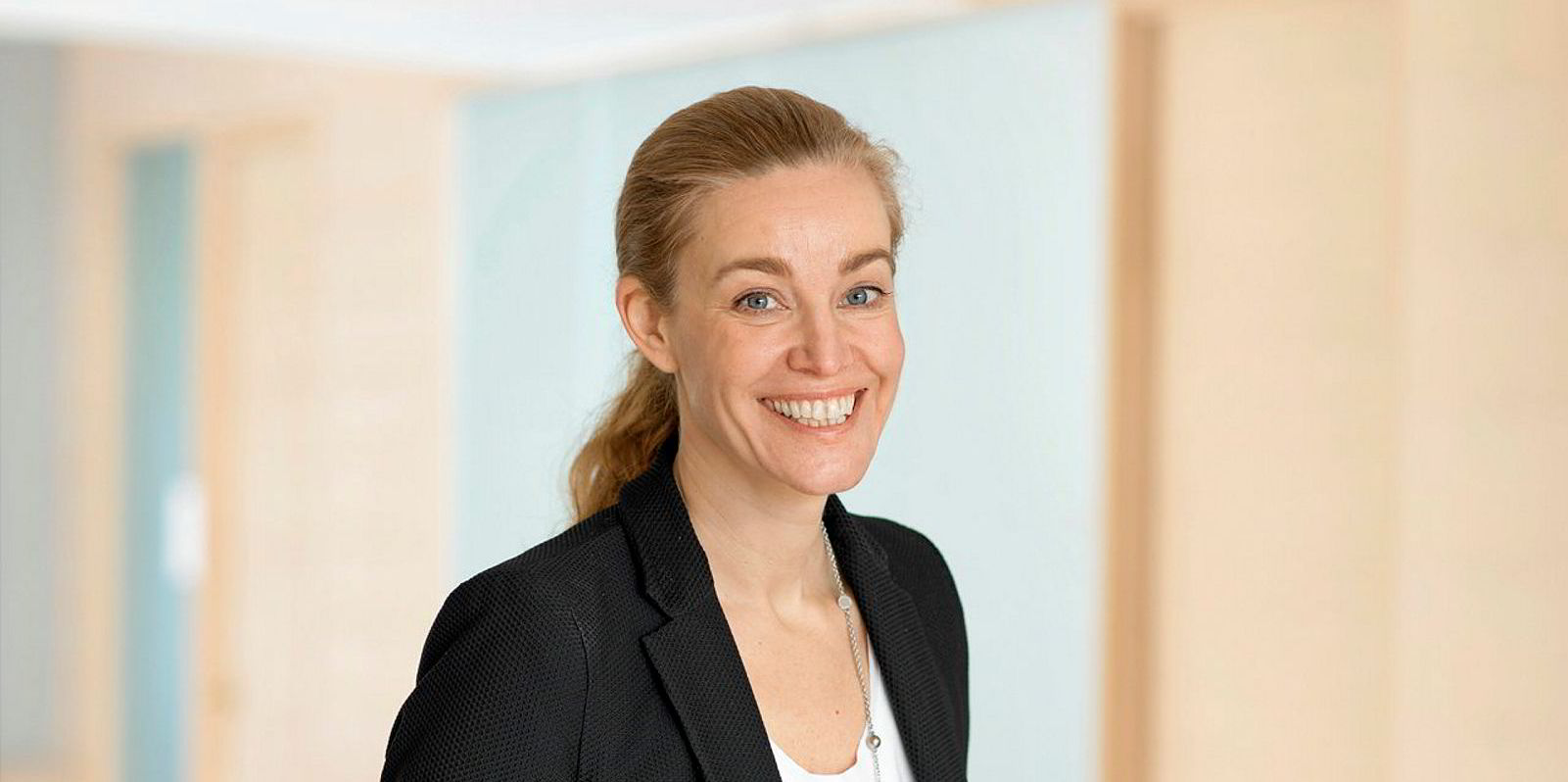
Rebekka Glasser Herlofsen required a small measure of convincing to speak with TradeWinds as she is no fan of media attention on women.
She is by no means alone in this stance. While many Norwegian shipping women point to her as a role model, those same women often stress a focus on qualifications, rather than gender.
“I’m a little bit saddened by the fact that whenever women are interviewed it’s about gender and how they cope with the work-life balance, raising kids and having it all at the same time.
“I just think it would be so much better for women if they were more profiled for doing the job that they do, talking about business, facts and their real achievements,” she says.
“There is some pride around it that we want to be seen for what we achieve and what we do, and not just for being the gender that we are.
“A lot of us are concerned with the issue and we do want to work on it — maybe more behind the scenes, by being role models, by pushing for women to be promoted at companies, by making men realise that they have a natural bias when they recruit. There is a lot to be done, for sure.
“Being a woman has never held me back, to be honest.
“Growing up in this industry for a long time, I really never felt that it was issue — mostly to the contrary — because you stand out as a woman and I was being selected many times. It felt almost like it was an advantage but then you get to a certain point where you do notice the lack of women and you think, ah, something is not right.”
As advice to others, Glasser Herlofsen believes the banking sector is a good first choice.
“It’s a great place to start out because you learn a very good craft and a way of working, analysing and kind of approaching problems. It may be just a first step,” she says.
“But I would also promote shipping. Even for young people, shipping is a fun place to start out because it’s very international, it has flat structures, you get a lot of responsibility early and many transactions you can work on. It is not so hierarchical and bureaucratic, so you actually get a broad view early on in your career.”
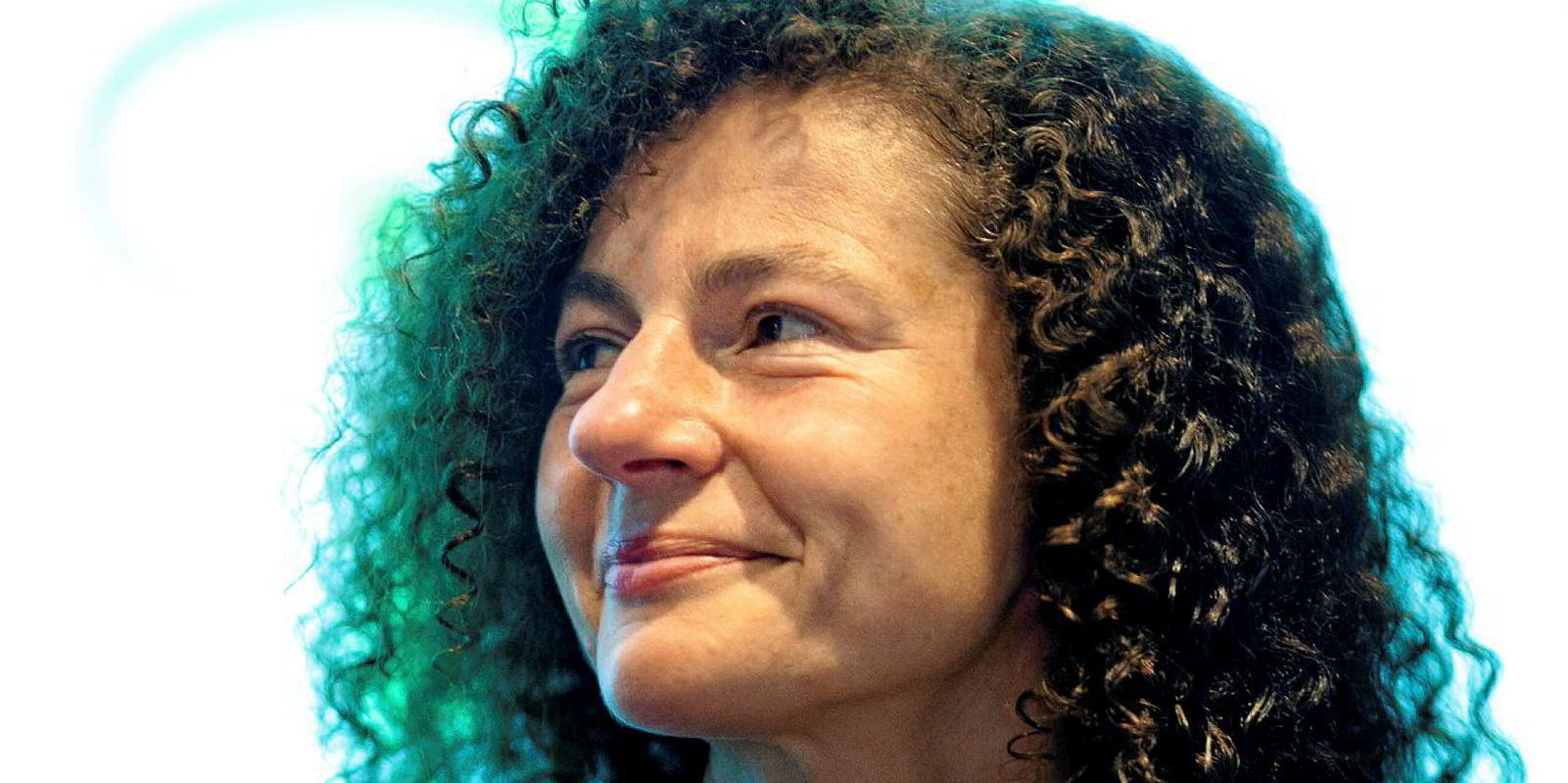
Inger Klemp has been the CFO of John Fredriksen’s Frontline Management since the summer of 2006. But she has also held directorships and executive posts at Fredriksen companies, ranging from Independent Tankers Corp to Knightsbridge Shipping.
Klemp does not believe improving gender balance should be a focus or target in itself.
“It should rather be on skills and to find the best candidates — and if a woman is the most skilled and best candidate and the right person she will get the job,” Klemp says.
Klemp has some clear advice for women looking to develop a shipping career.
“Go after the job you want — show up, call them, sell yourself — do not simply respond to ads,” she says.
“Be dedicated and work hard, show integrity and stand up for what you believe is right, but at the same time be humble and loyal to decisions taken.
“Be yourself — never try to be a man.”
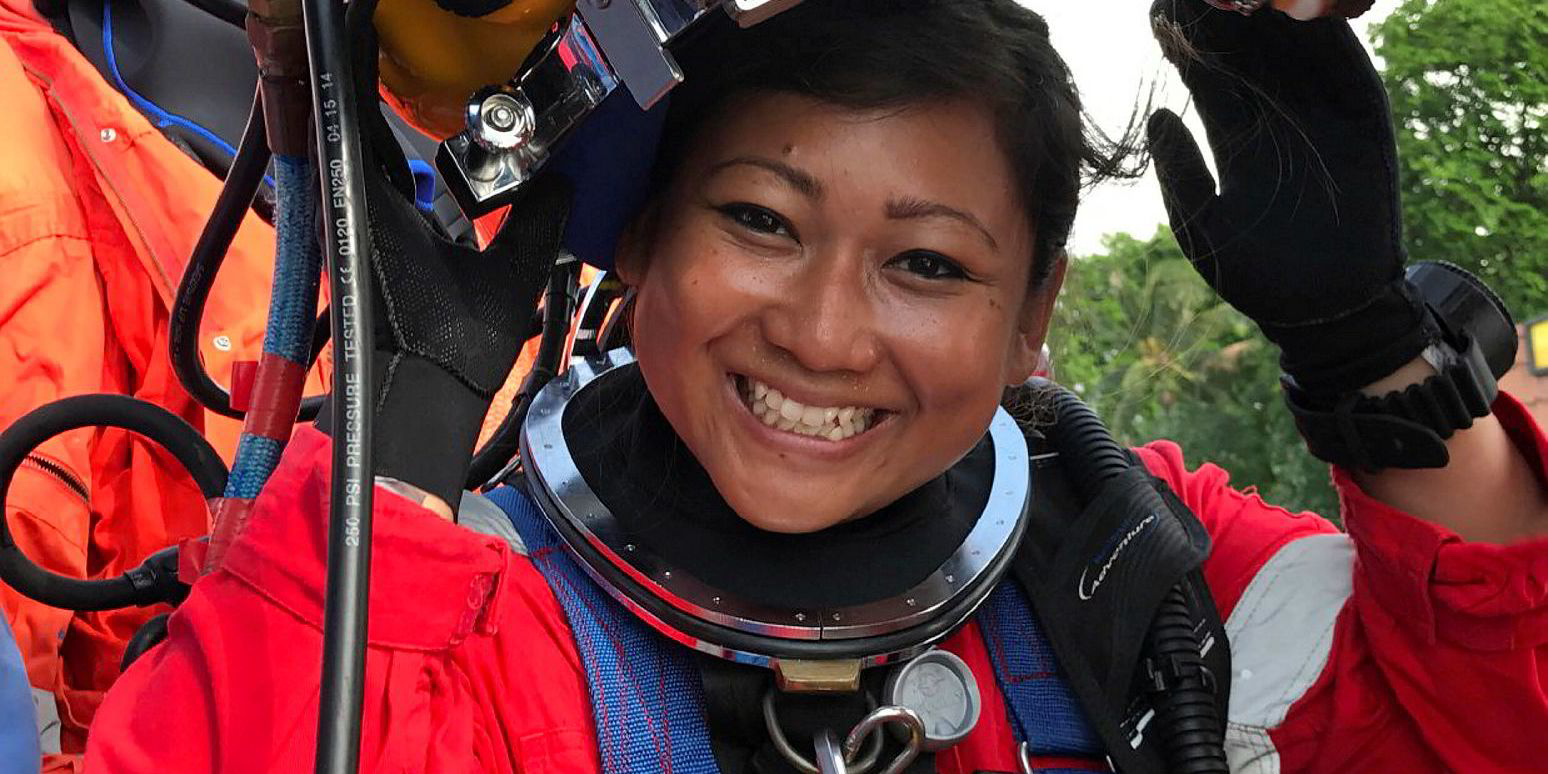
Siti Naqiah Tusliman has turned her passion in recreational diving into a career. She is the first female in the Lion City to be certified to use specialised diving gear known as surface-supplied diving equipment, or SSDE, for work purposes in Singapore waters.
KBA Marine Services general manager Richard Tan says: “Naqiah is making a difference in a historically male-dominated vocation in Asia. As it is, not many people want to be commercial divers because of the perceived risks and difficult working conditions.
“Her determination and success in becoming one has given the industry a boost as it opens the doors to Asian women who never thought that it was possible.”
Naqiah says it was her strong determination that helped her in getting her diving certificate. Being the only female commercial diver, she says she received the same treatment as fellow divers and gets equal opportunities.
“The only shortcoming about this job is that there is no toilet onboard the boat.”
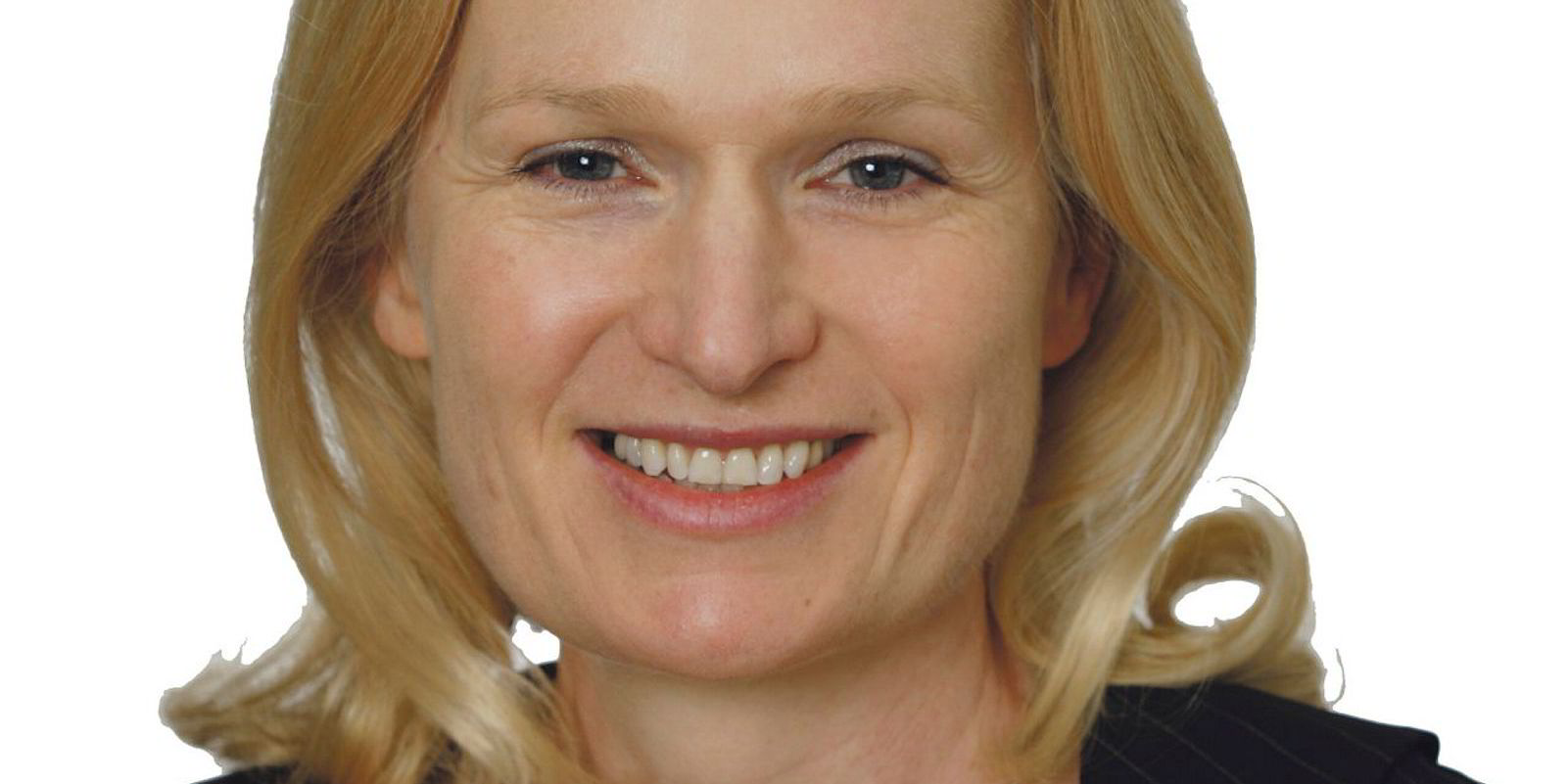
HFW partner Elinor Dautlich is one of the most prominent women lawyers in shipping law and co-chairs the International Bar Association’s Maritime and Land Transport Law Committee.
Reflecting on 24-year career in shipping law, Dautlich says it is getting easier for women to progress in the industry. “Certainly, I think it is fair to say that the shipping industry has been male-dominated in the past but that is changing. Perhaps [it is] easier as a lawyer, and a transactional one at that, so not having to board a ship in the middle of the night to take statements.
“My firm HFW recognised my abilities and made efforts to accommodate me in having my family — efforts which we now make for all our lawyers, of whatever gender.
“There were a few situations in the early days when I could not participate in certain client entertainment environments, and that annoyed me, but I think every lawyer has to find their own style when it comes to business development — not to mention #metoo.
For women wanting to make a career in shipping law: “Make it your business to u
nderstand the clients’ business or your employer’s business if you are inhouse.
“Learn to be a bit less modest than might seem natural to you. If you are good and that is recognised, you can have a very interesting job throughout your career.”
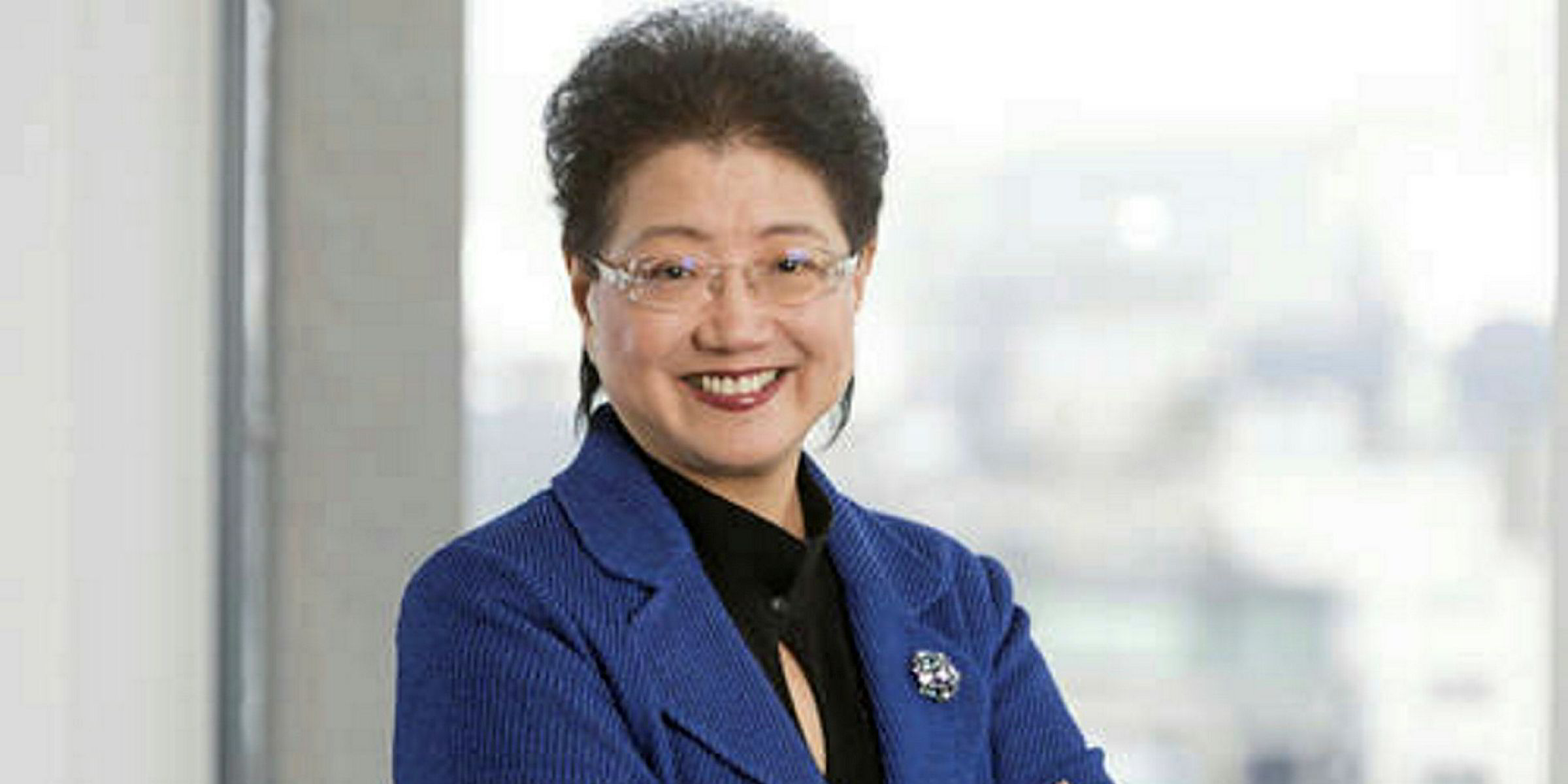
Agnes Choi is a 30-year veteran of the Hong Kong market and was seen by some as potentially the first Asian president of the 144-year-old organisation.
But she plans to retire from IUMI’s executive committee at the September conference in South Africa.
Choi has been a claims handler, underwriter, involved in reinsurance and most recently worked for the French Axa group.
She is still contemplating what to do next, so the marine insurance market may not have seen the last of her.
So, has she found marine insurance to be a man’s world? “There are more men in areas like hull or offshore energy but I wouldn’t agree with that statement. It is not a matter of gender but capability and whether one has a passion for serving the maritime industry.”
And would she recommend marine insurance to a young woman contemplating that career path?
“Marine is a truly global business and, no matter what different culture or background you come from, the issues are the same. It is very dynamic and interesting.”
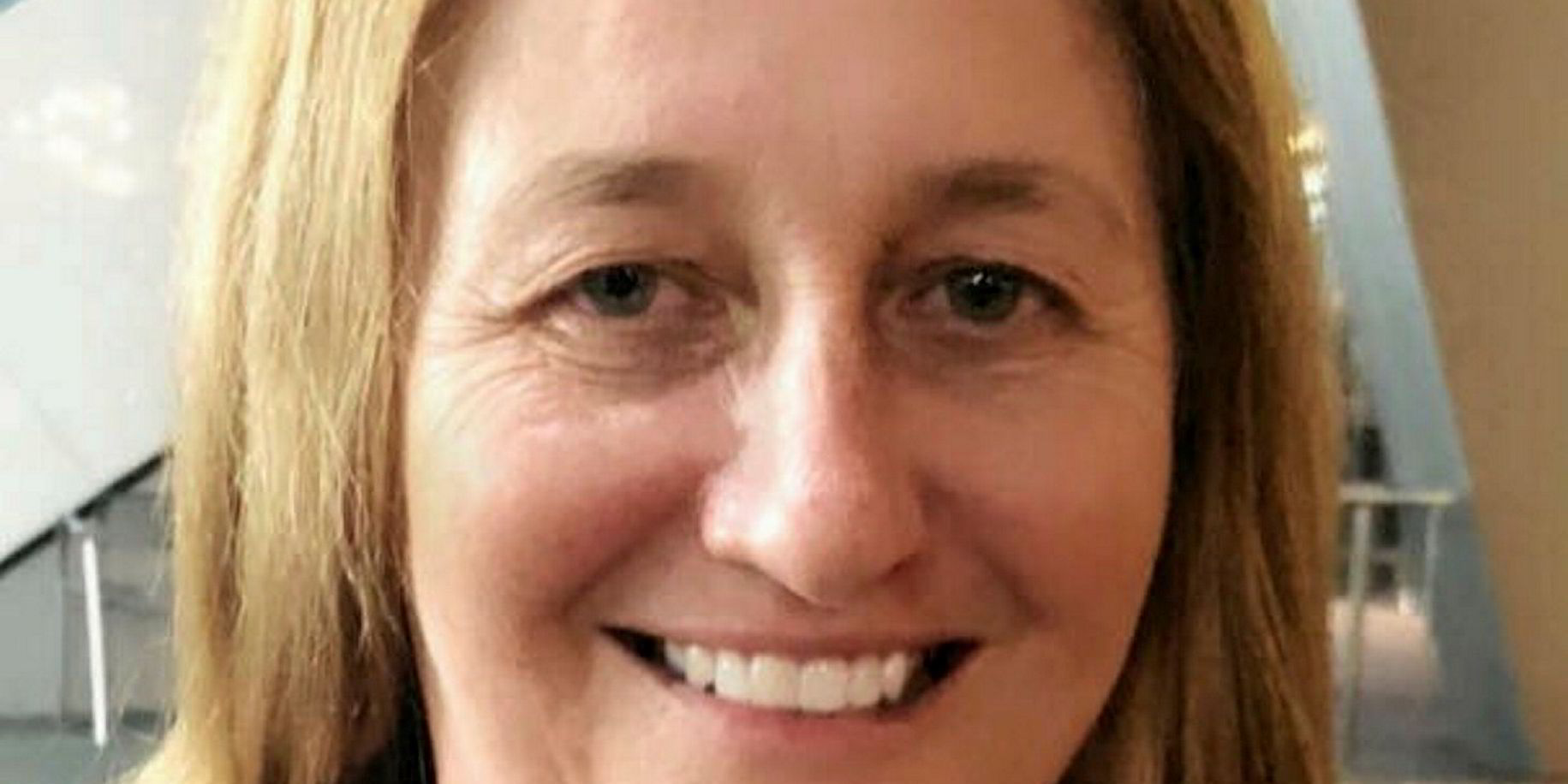
Australian Debra Hampton joined a shipping company in Melbourne as a telex operator straight from school after her mum told her to get a job.
“If you are typing the telexes and talking to the clients you end up knowing a little bit more than you think and it gave me a very solid basis,” she says.
She shifted over to broking, learning everything on the job. “There weren’t that many females so it was a bit of a novelty to speak to me at that stage,” she says.
On shipbroking, Hampton says women tend to use it as a stepping stone for moves into chartering or owning where hours are more sociable, particularly for those wanting to start a family.
Broking is “hard work” as you are serving both sides — owners and charterers, she adds.
On the pluses, Hampton says: “You can move around the world with it. You never stop training because the trade routes keep changing.”
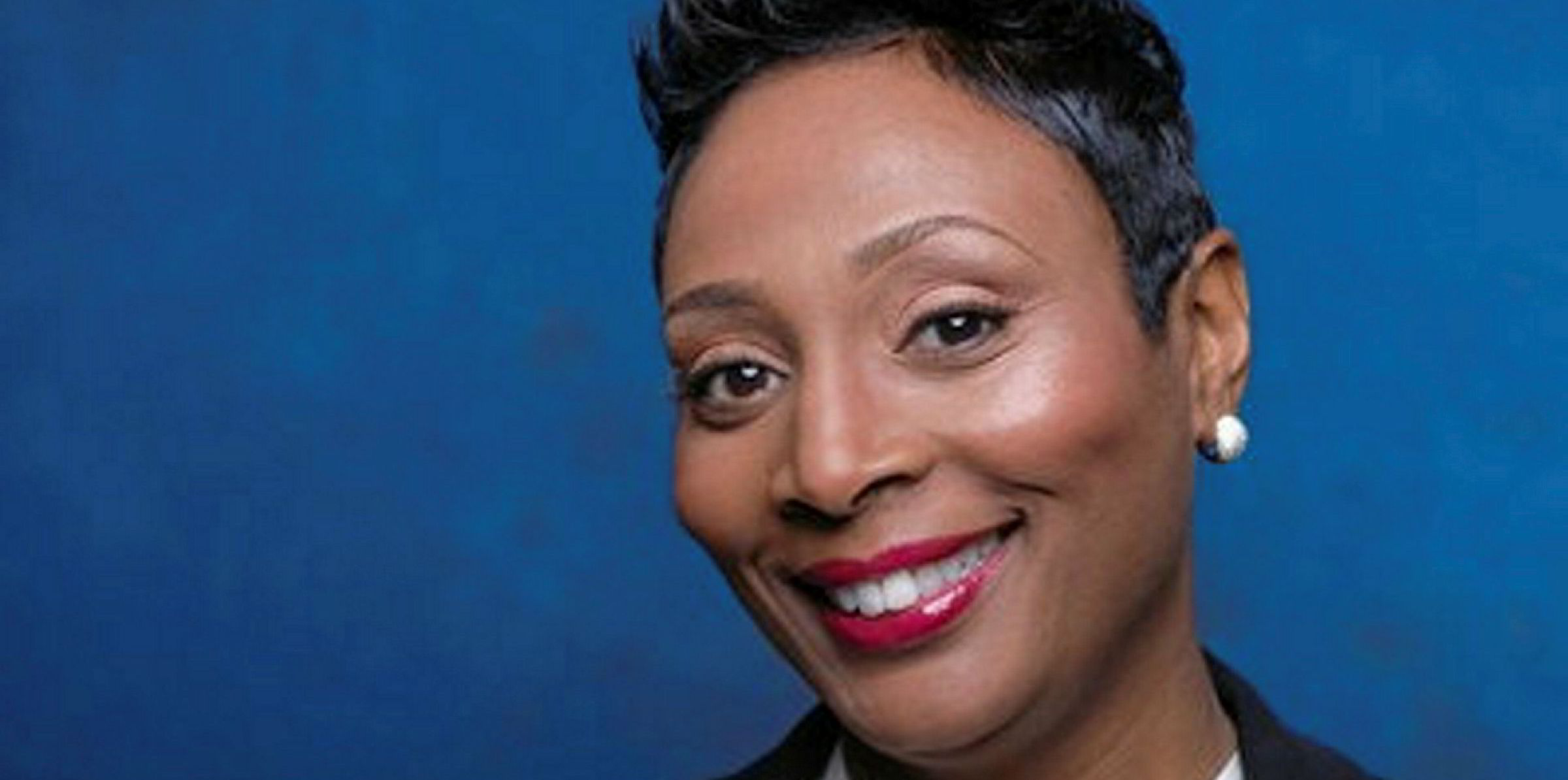
Julia Brown says she does not consider her role to be female specific to the cruise industry as it tends to be male-dominated across many industries.
“I believe in making a difference in the business, so I would not say the challenges I have experienced are due to gender but more to driving significant changes in what and how we strategically source our goods and services,” she says.
To better foster gender and racial balance at senior levels, companies should ensure gender diversity among job candidates and focus on use within the role, says Brown, who is listed in Black Enterprise’s Top 75 Most Powerful Women in Business.
“People may say they can’t find senior female leaders or senior people of colour, but it may take some extra effort to do so. Diversity is just good business sense.”
She encourages women to make a difference by finding ways to improve the industry through curiosity, confidence and courage. “Few leaders consistently demonstrate all three, so the ones that do are able to stand out.”
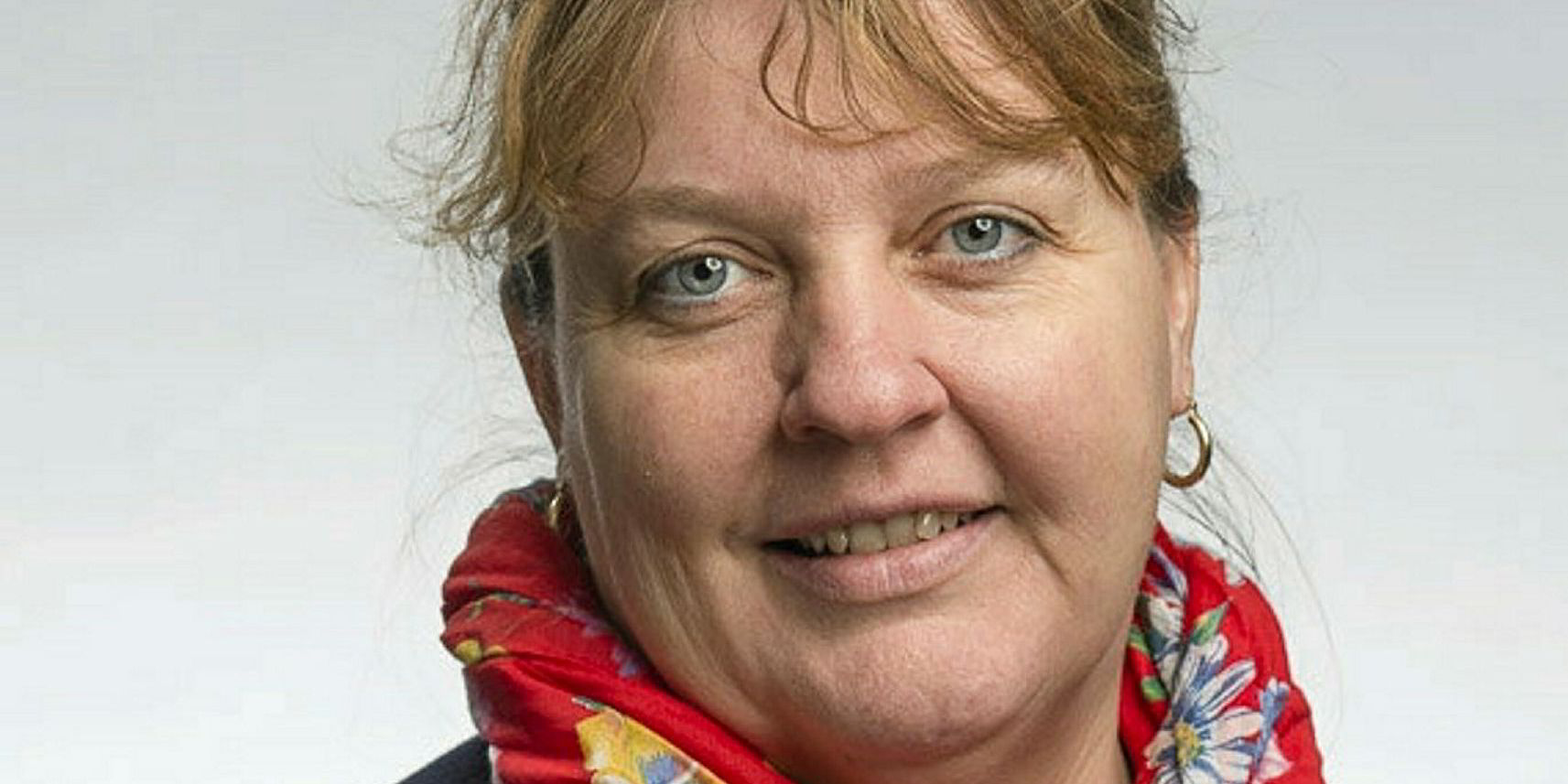
Born into a family with over 150 years of history in the shipping business, going to sea was something that Petra Heinrich always wanted to do.
“I never thought of anything else,” she says. Despite her mother’s worries, she never had any problems being the only woman onboard vessels and considers shipping an attractive career choice for young women.
So why aren’t many women following in her footsteps? Heinrich puts that down to the fact that two-thirds of German companies have been run by an older generation of captain-owners, many of whom don’t believe a woman’s place is onboard ships.
“It’s deeply embedded in their minds,” she says. “If they have a choice, they will always take a man.”
Heinrich, the sole female representative on the 25-strong board of the German Shipowners’ Association, is doing her bit to change things.
“I always like to encourage women to go to sea. I like to have women onboard our vessels.”
She is supportive of young women who want to take the licence-qualifying apprenticeship as ship mechanics. “If there’s a girl who likes to do that job, normally I just take her. Because those girls who do this job are very good in the end because they really want to do it.”
Her advice to women is to remain true to themselves. “Don’t try to be too girlie — they are not too popular for the vessel,” she says.
The men should open their minds. Many of them really do think that women and shipping are two different worlds.
While she is the only woman on the 25-strong board of the German Shipowners’ Association (Verband Deutscher Reeder), she points to a growing number of females in committee and working groups, particularly those related to crewing.
But only a very few are directors. That may have something to do with the work-life balance that women face when raising a family — something she herself has experienced in running the company with her husband, Captain Jens Robrahn.
“Sometimes I have the feeling, it is getting better,” she says. “But then they [women] suddenly disappear again.”
Ultimately the task of change is in the perception of her male colleagues.
“The men should open their minds. Many of them really do think that women and shipping are two different worlds.”
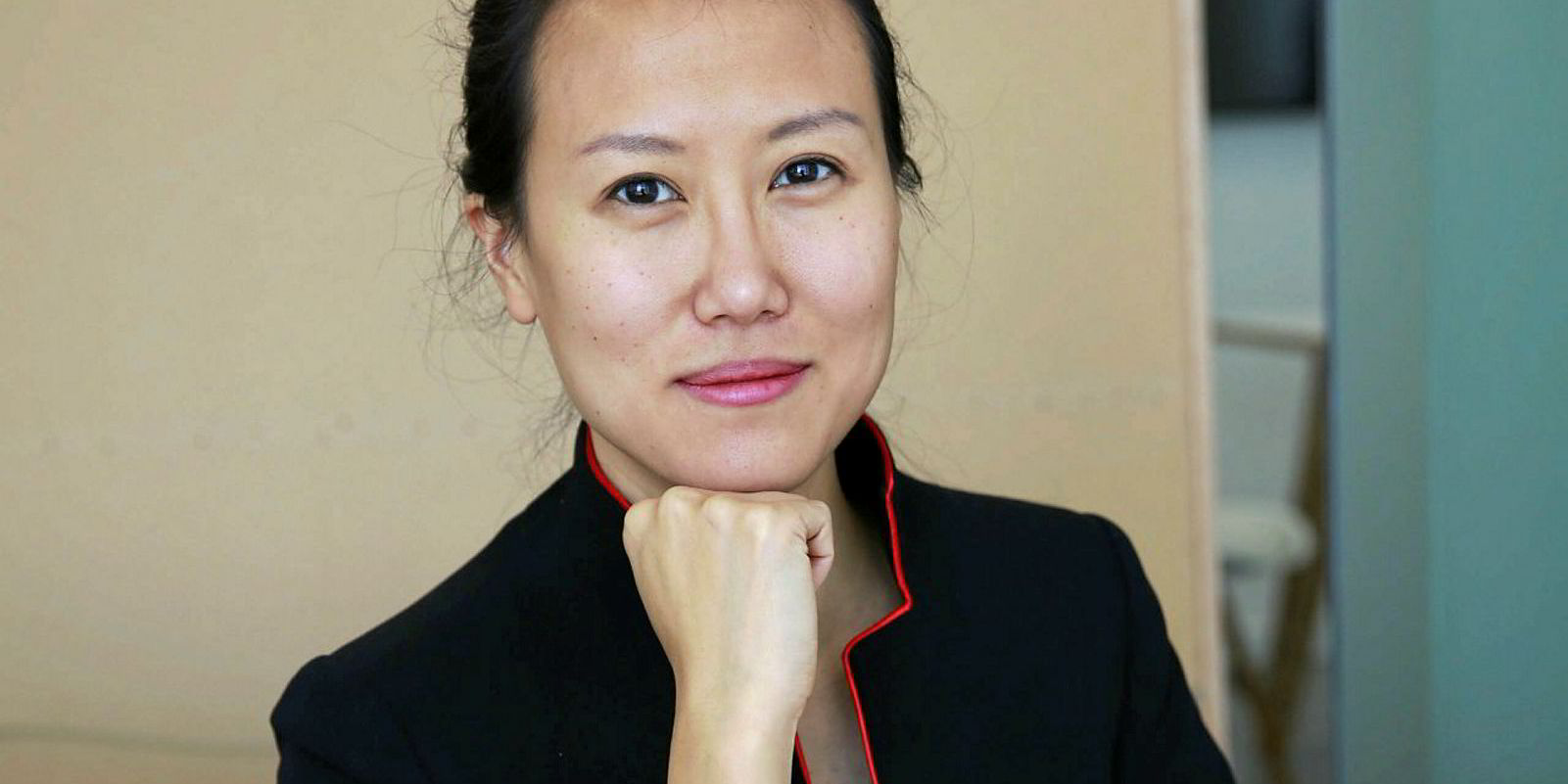
“The reason I got a chance to progress and become visible in shipping is because it’s that kind of international business, says Tina Liu Qianwen, of shipping data company Elane Inc.
“Women in general can adapt better to other cultures. Patriarchal society makes that challenging for men.”
“I would say that in shipping research, in service industries such as law firms, the gender ratio is relatively well balanced,” she says.
“Organisations led by people with similar personalities have blind spots, and a concentration of males can be especially toxic if it distracts the company from its task of serving others.
“Adam Smith [Scottish economist] recognised that a company is able to make a profit only because it benefits others.
“If we become narrowly focused on the profitability rather than benefiting others, that’s egoistic and it’s very much a male characteristic.
“If you want to bring more women into top levels of management, more flexibility in the workplace is needed,” Liu says.
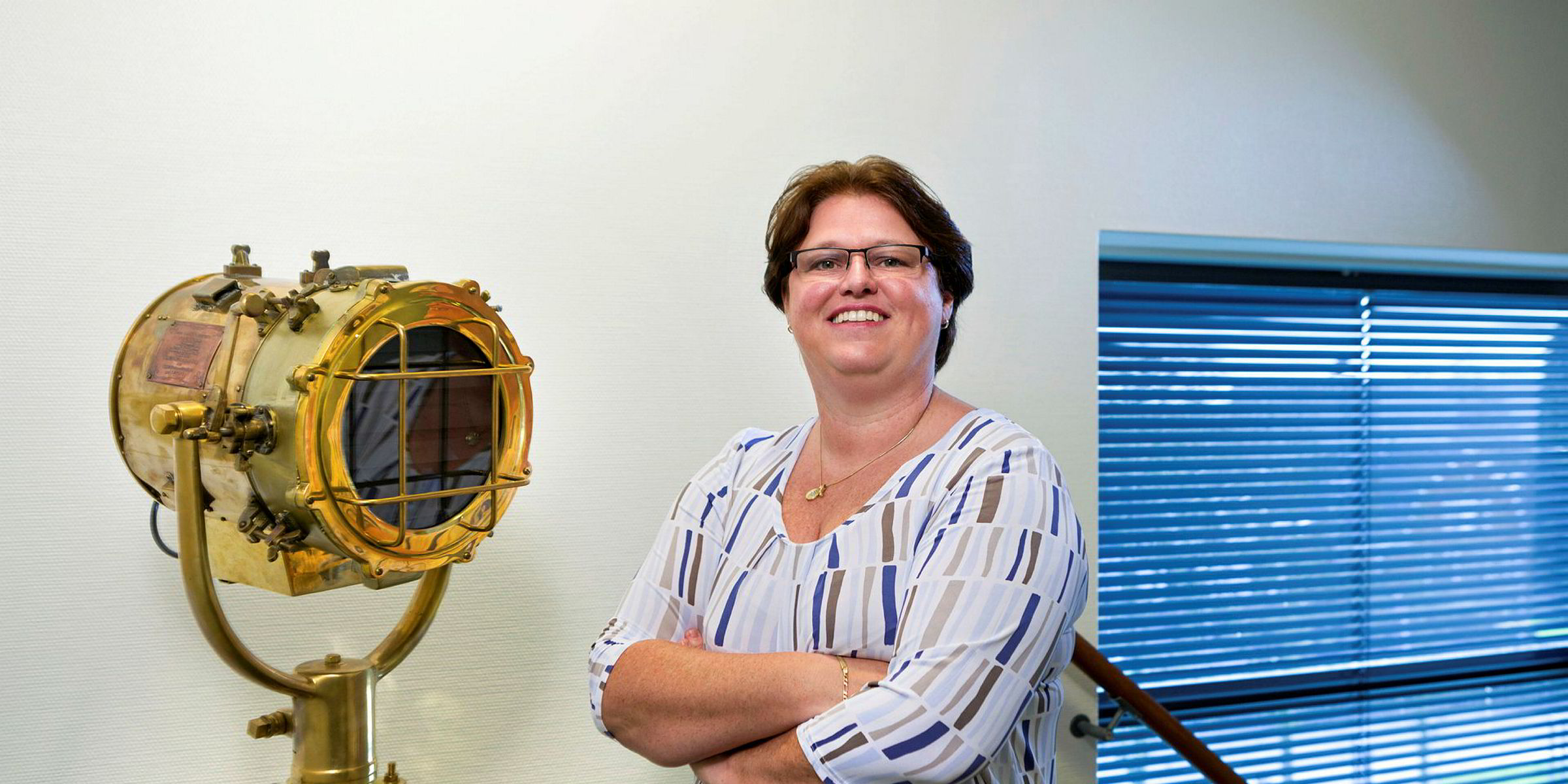
Karin Orsel says women have to be more proactive — and she practises what she preaches.
A former president of Women’s International Shipping & Trading Association, WISTA, she says: “We should be more visible ourselves.”
“By stepping-up and having an organisation in place for mentorship for young women in the industry, you can make a difference.”
Orsel, who in 2013 became the first female vice-chairman of the International Chamber of Shipping and is co-chairman of Royal Netherlands Shipowners’ Association, plays down the importance of gender on her career, saying that she has hardly ever experienced problems.
She is also confident that the next generation of women in their 30s are already entering the industry, and that the changing nature of the workplace — with a focus on digitisation and the environment — may attract more women.
“I think our global challenge is how to attract the next generation. Because our industry has had an image problem. It’s only by stepping-up and making bold decisions — like what the industry agreed upon with the CO2 discussions — that you show the world you are becoming a more attractive industry to work for.”
She concedes that there are not many women at senior level. “Of course there are challenges, but compared with many years ago we’ve made a lot of progress.”
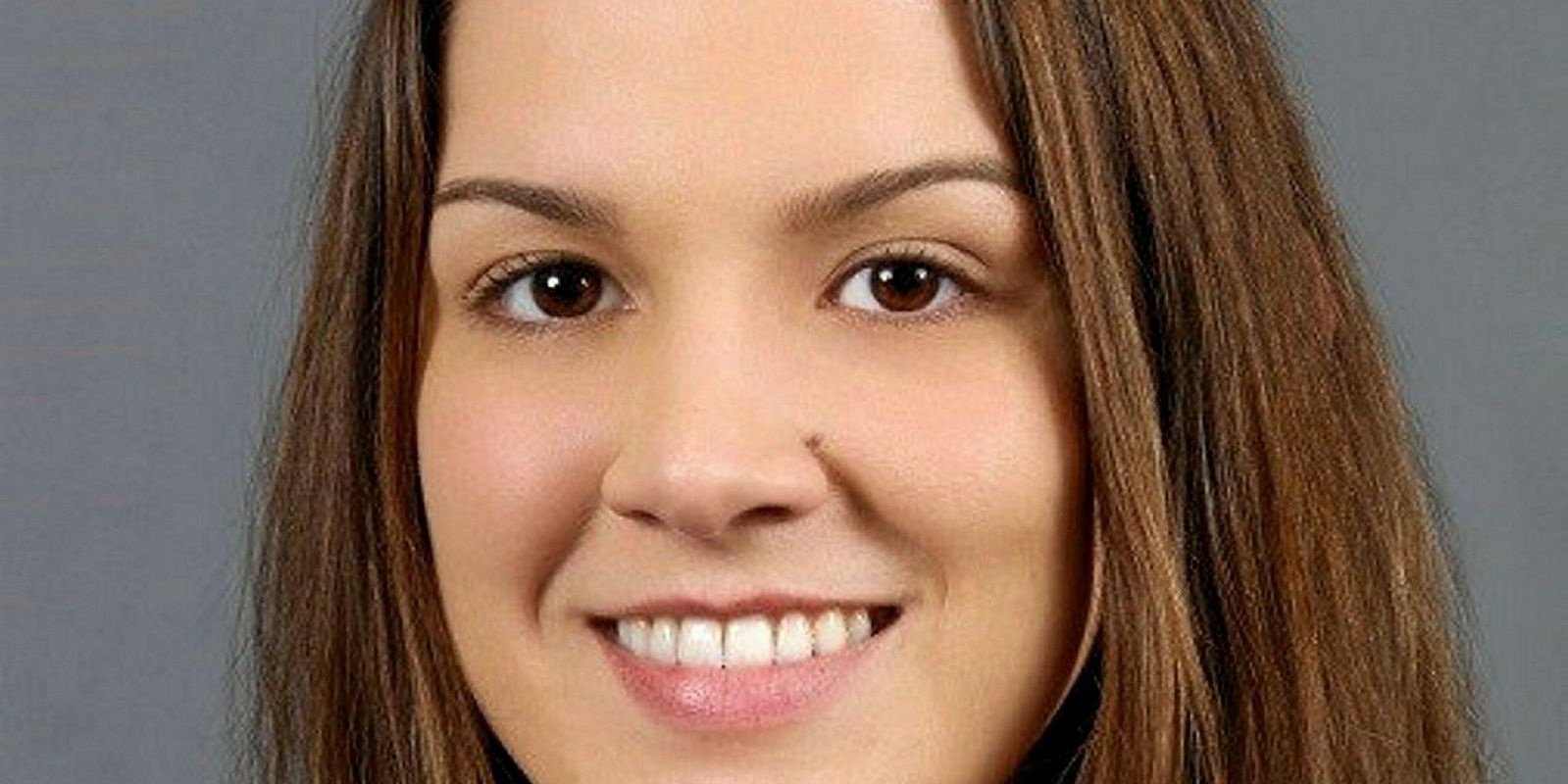
Kierstin Del Valle says the challenges she faces in the male-dominated maritime industry have more to do with how to work with others, regardless of gender.
“When the preferred method of work and communication is not necessarily in line with my own, I consider it important to adapt my style to better accommodate timely completion of the item being worked on,” she says.
Del Valle develops CLIA policy for and negotiates industry positions with regulatory bodies, other industry associations and foreign governments. Specifically, she leads matters related to polar operations, cyber risk management and training.
She says gender balance at the senior level is better than in other industries but it could be improved further through more marine-related degree programmes.
“It may not be an instantaneous shift, but as more and more women pursue maritime degrees, the more even the applicant pool will be,” she adds.
She encourages women looking to go into the maritime industry to consider a wide variety of jobs. “For those who appreciate a sense of adventure, perhaps sailing as an officer or an engineer is the preferred route,” she says.
“For those who like communications, they can consider a shoreside role doing just that.”
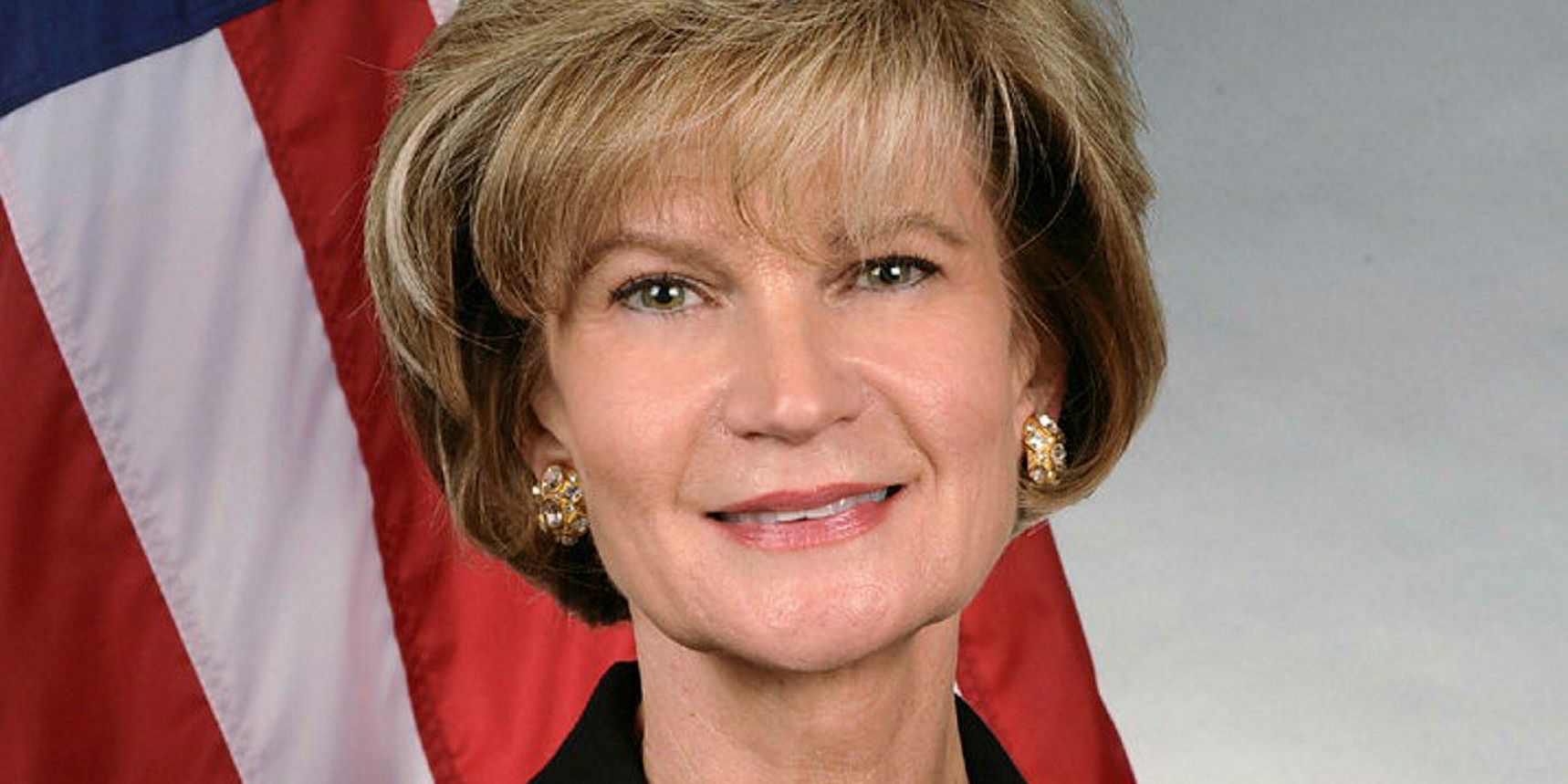
Entering the maritime industry is “the best thing I have ever done”, says Rebecca Dye.
“I love the maritime industry. The more I speak with leaders in the industry, the more I respect them and the work they do.”
There were almost no female role models to follow in Dye’s early career. But her mentors focused on her capabilities and she made sure to prove them out in every instance.
“I had my share of awkward situations. Every sponsor in my career has been a man, but I was always fortunate to find great mentors.”
Now as a mentor to others, she says women are “thriving” at US maritime service academies, which means a new generation will enter the industry at some point.
Those individual efforts will make the biggest difference to right gender balances, she says
“I don’t really think women can succeed apart. We can only succeed together.
“I am always pleased to see men at events billed as women’s leadership events,” she says.
“Plenty of men get it, but I am not sure there should be much difference in how you approach leadership.”
As for career advice, Dye believes it comes from taking up the challenges that come your way.
“The best advice I heard was don’t chase your passion, but follow your opportunity.”
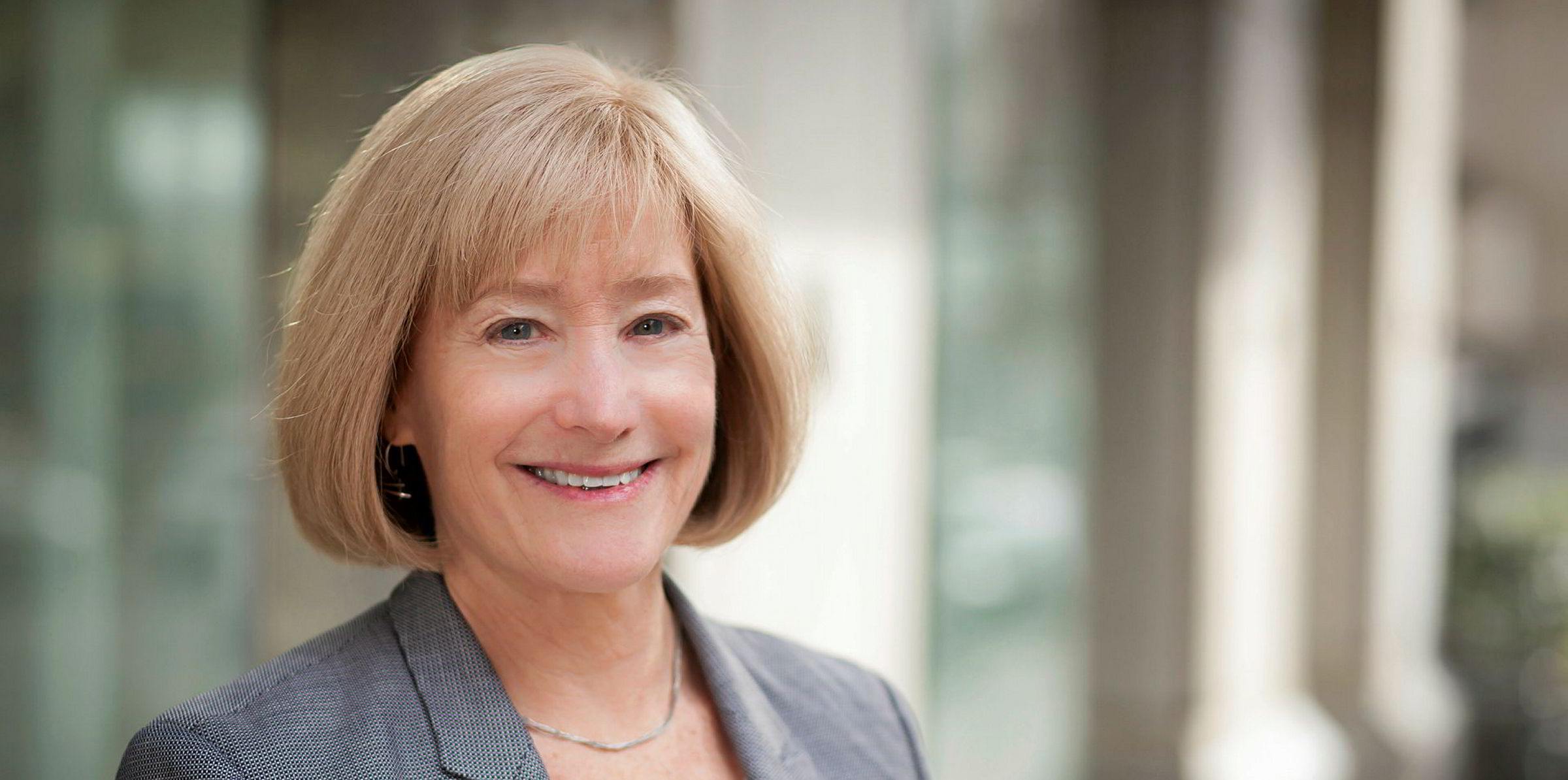
Lawyer Barbara Holland was attracted to maritime at an early age. Growing up in Michigan, she remembers watching ships pass by on Lake Superior and through the Soo Locks.
Holland got her first job as a lawyer at Seattle firm Garvey Schubert Barer, where shipowners Tote and Cosco were already clients, and never turned back.
She is involved in a range of areas in the fishing and shipping industries and advises shipowners in coast guard investigations. She is also on the firm’s 24-hour casualty response team, and provides advice to clients facing potential liability for pollution incidents.
She is also involved with the US Maritime Law Association, where she was recently elected as second vice president and some predict she is on a path to become its president.
Holland says women interested in a career in maritime law should learn as much as they can about the industry. “Spend time with the people who are operating the vessels and the terminals and the shipyards. Develop relationships with the regulators and the legislators whose actions affect the industry,” she says.
“Go to federal court and watch a trial or argument involving maritime law issues. And of course, talk to lawyers who practice maritime law to find out what it is like and why they chose it.”
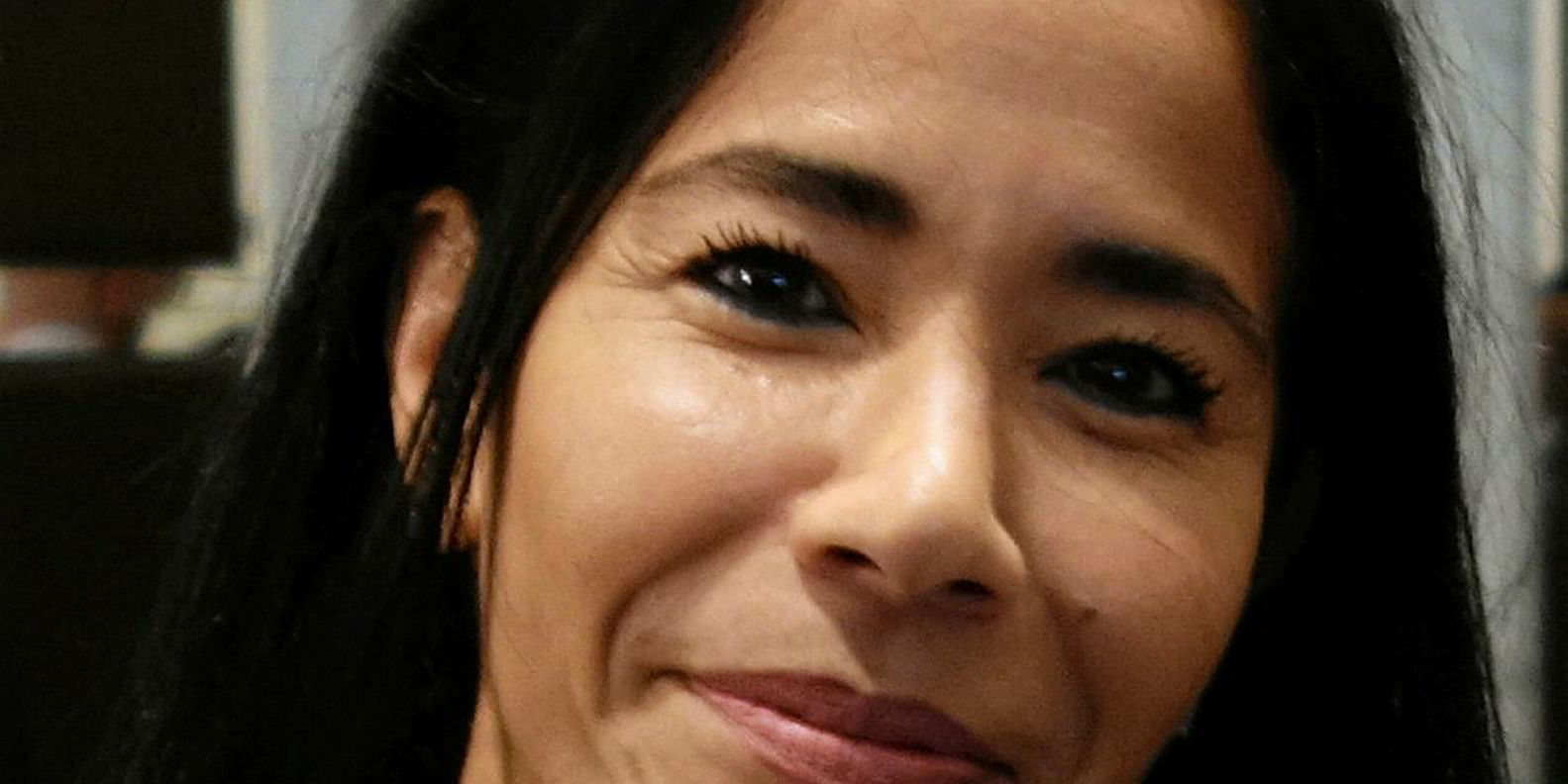
Maite Bolivar Klarup joined Bimco in 2016 and represents the organisation in Singapore and key shipping states in South East Asia.
She says women in shipping prefer nothing more than a level playing field. “We don’t aim to be treated differently. We merely want to be able to compete freely and fairly and be recognised for our work and contribution to the industry.
“It gives so much positive energy and inspiration when you meet women with such engagement and energy, excited to go the extra mile for the industry and their carriers. Some times you need to see someone who is a little more like yourself to see that reaching higher is possible.”
Bolivar Klarup says shipping should give more visibility to the younger generation.
She adds that it is also important for women to take responsibility for developing their own careers. “There are lots of interesting opportunities out there and it is important that young women seize the opportunities and assume accountability for their careers.
“Shipping is a great industry and I am very proud to be a part of it.”

“I have spent the majority of my career working in the maritime industry — a world historically dominated by men,” says Julie van ‘t Hoff.
“In general, men are very straightforward, no nonsense and results-oriented and that fits well with my character, attitude and our business culture at Van Uden Shipping.
“I was fortunate to be promoted fairly quickly early in my career, and often found myself to be the only woman during management meetings and when dealing with clients.
“If I need to give advice to any woman to be successful in our industry, I would say it all starts with a firm belief in yourself. Be assertive, authentic and focus on the things within your control.
“A lot of women find it difficult to accept that men often tend to dominate the conversation. In my mind, the solution is not to become louder, more aggressive or more belligerent than men. Instead, find your own ways to add value, build relationships and create new opportunities.
“Last but not least — be sure to communicate your career aspirations to your manager and those higher up. Don’t wait for someone to ask you!”
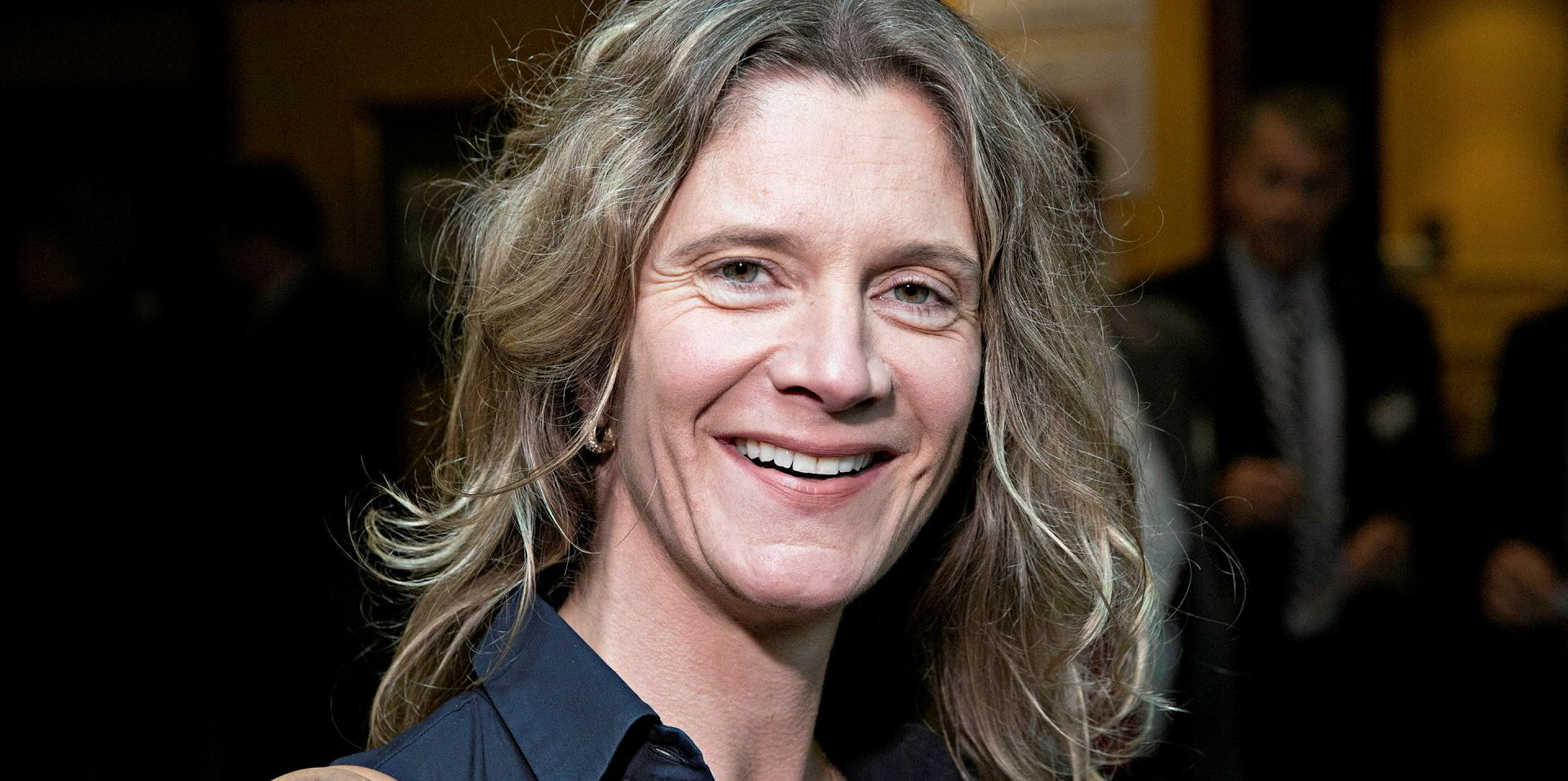
Young women seeking to advance should not fall into the trap of only going after support roles such as HR, legal and compliance, says Irene Waage Basili, who has 27 years under her belt in the shipping and offshore industries.
She says the ideal roles are those with operational experience and profit-and-loss (P&L) responsibility, such as key account management or taking charge of business lines.
“I would tell a woman to start off in shipping or offshore because they are incredibly interesting businesses. Seek P&L responsibility and operational experience early on. Don’t fall for the temptation and think it’s much easier to make a career within the staff or support function,” she says.
“When you have P&L, gravity works in your favour. When you sit in a support function, you have to negotiate, get people over on your side, convince them of the value you are bringing to the table. Whereas, if you have P&L, obviously, you drive the business.”
Waage Basili says she regularly declines to be interviewed for gender-equality articles. “I don’t think it benefits the cause, when a lot of the approach that media outlets take is asking, ‘how is it to be a woman in a male-dominated industry’ and then to view it only as a problem for the woman.”
“I think there should be a hell of a lot more women but, personally, I think we should talk about it as a competition issue. Any company or business that’s not able to recruit 50% of the population has a big problem, so we shouldn’t take the approach of trying to convince companies of what women can bring to the table.
“It’s actually about turning it around and asking what challenges will a business face if they’re not able to recruit from 100% of the population. Any company that does not appeal to a woman when she is young and graduated has much more of a problem than she does.”
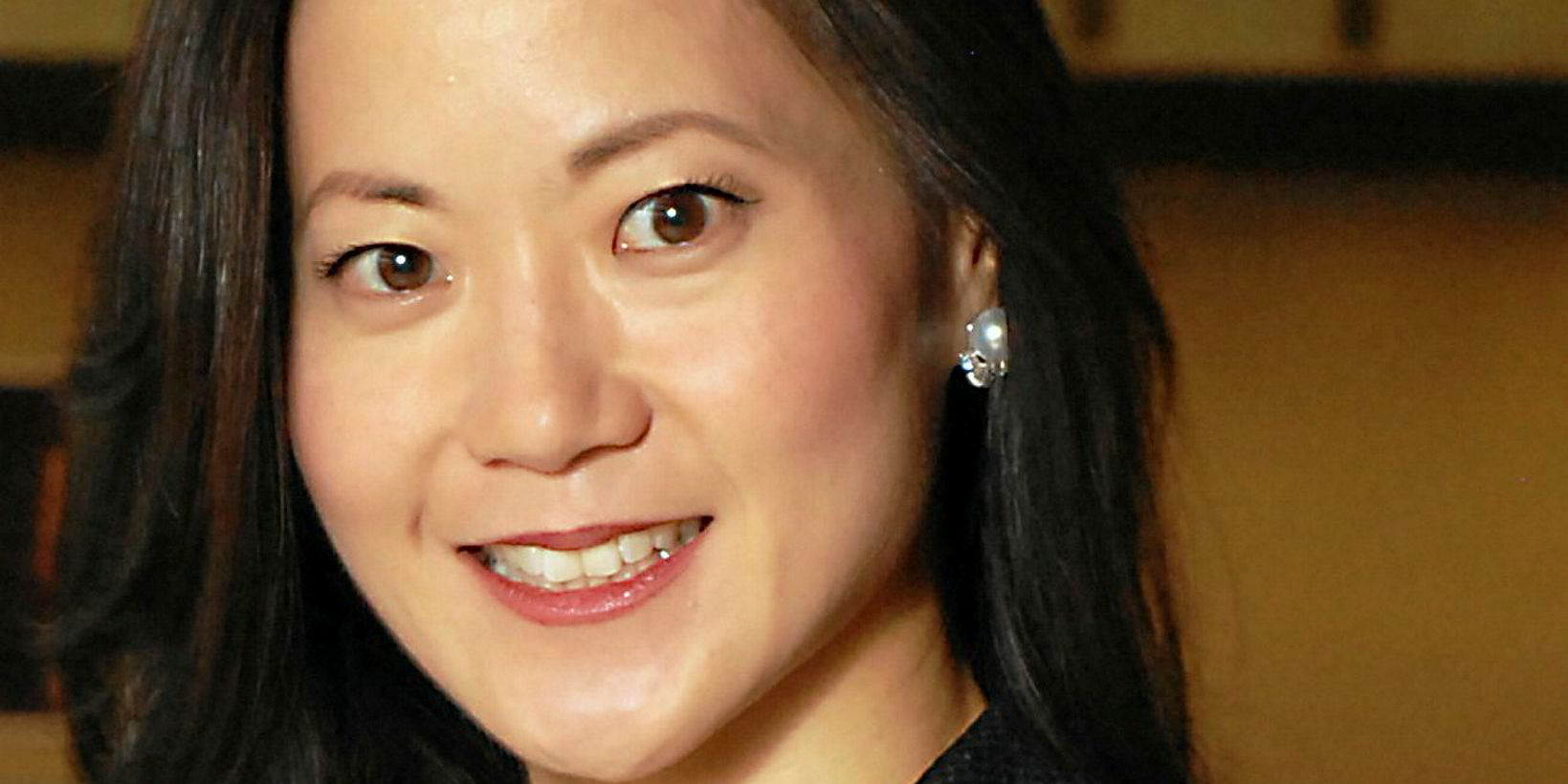
Twenty-two years after starting at the bulker company started by her father, Angela Chao has recently become the chairman and CEO of Foremost Group.
One of six daughters of China-born James Chao, she is one of two working at the family firm (Christine, an accomplished lawyer before joining the outfit, is general counsel).
She is also the sister of Elaine Chao, the US secretary of transportation.
Chao says that shipping is not the only industry where men heavily outnumber women. “Unfortunately, all the good ones are male dominated, which is why we have to work hard to get into them and to pave a road for the generations after us.”
She says that her parents encouraged her not to be intimidated, not to be discouraged and to do their best when faced with those who doubted a woman’s role in shipping.
“My mother would always say, ‘Don’t get mad, just prove them wrong’.”
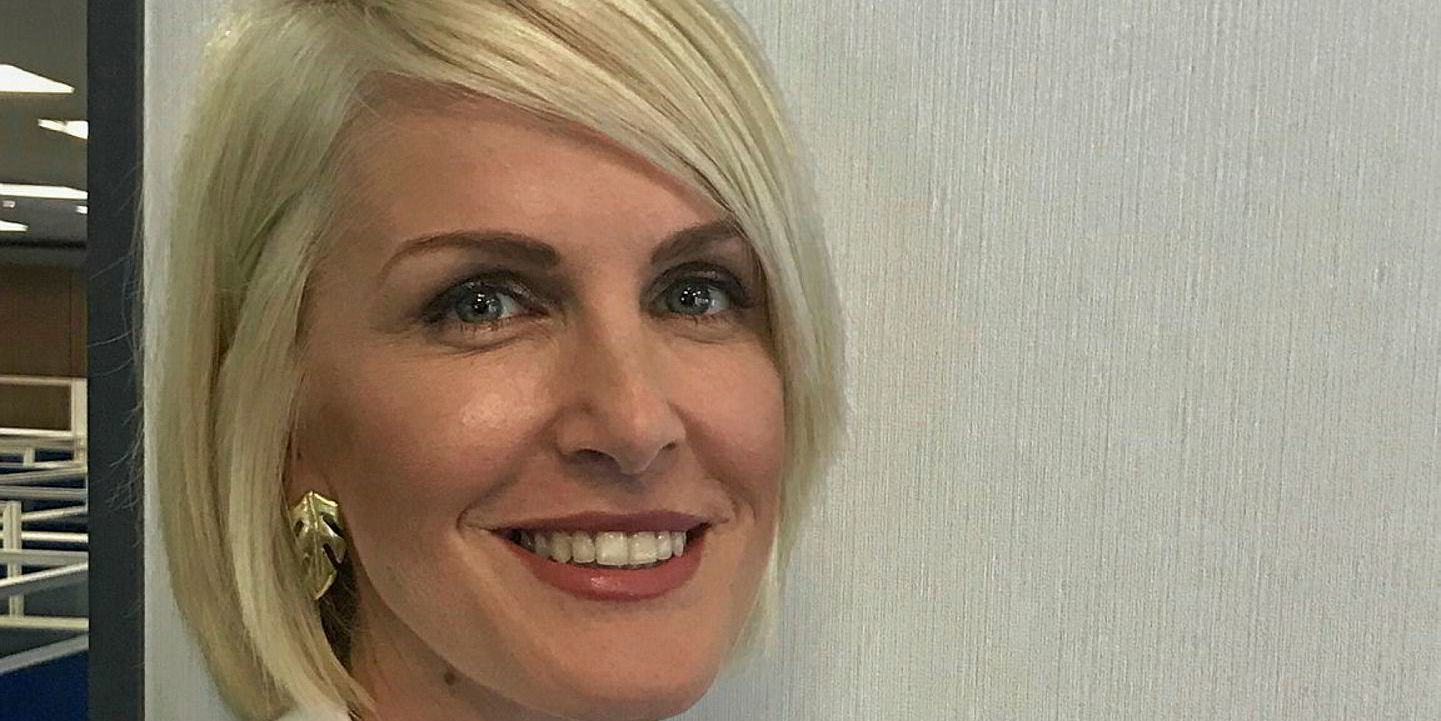
New Zealander Olivia Lennox-King suggests that shipping has something of an image problem. “Women outside the industry do not always see us [shipping] as a natural or glamorous career choice. The number of times people have expressed surprise when I tell them what I do is indicative of that problem,” she explains.
While she agrees there are challenges that face women in shipping, she says that for most of her career gender has been irrelevant to her professional progression.
“I consider myself very lucky in that I have had supportive male leaders and role models, who have both encouraged me and held me to the same standards as my male counterparts,” she says, adding that in her view this is how it should be.
“Ours is a male-dominated industry without question, and with that comes a certain workplace dynamic, which you learn to adapt to.”
She credits her success to hard work, and encourages new industry entrants to have the same attitude no matter what their gender. “Be prepared to roll up your sleeves and be flexible. When I began with AMP, I was inhouse counsel, but I could see there were other areas in the company that needed resources, and I wanted to learn as much as I could, so I took on roles in other areas.
“Don’t turn down new opportunities, don’t think ‘that’s not my job or skill set’. When you are starting your career, the best thing you can be is valuable to your company.”
To improve gender balance at a senior level, Lennox-King suggests the conversation needs to include senior male counterparts, because they are a large part of the solution.
"The best way to improve the balance is for the industry to appoint qualified women to senior positions. Women working their way up the industry need to see that success and progression is possible, other women are doing it, and that it is not only a viable but a rewarding path. Women also need to support each other up the career ladder.”
This article has been amended since publication to reflect that Angela Chao is chief executive at Foremost Group.
